Gallery: Frank Lampard's England career
We celebrate a century of caps for the Chelsea man with 50 of the best pictures from his Three Lions journey...
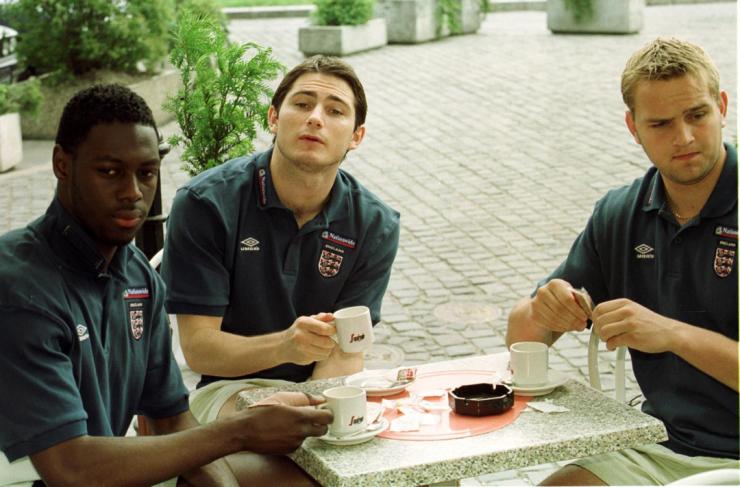
As far as international careers go, Frank Lampard's has been a rather good one.
After impressing during his breakthrough years at West Ham, he made his debut for Peter Taylor's England U21 side as a teenager against Greece in 1997. It ended in a 4-1 win, in which Emile Heskey bagged a brace, Michael Owen stabbed home a third and other protagonists included Jamie Carragher, Rio Ferdinand and, er, Riccy Scimeca.
Lampard earned himself 19 caps for the under-21s between 1997-2000 and ended with a healthy return of nine goals - almost one every two games for the young Lions. Indeed, only Alan Shearer and Francis Jeffers (13 each) have netted more.
Gone now are the days of B internationals (England's last came in May 2007, a 3-1 win over Albania at Turf Moor) but Lampard featured in England's experimental clash against Chile in February 1998. They lost 2-1 but Lampard, then just 19, played an hour after replacing the injured Nigel Quashie (yes, we chuckled too) after 34 minutes.
If you're interested, other household names in the side included Kevin Pressman, Marcus Hall, Dominic Matteo and Steve Guppy.
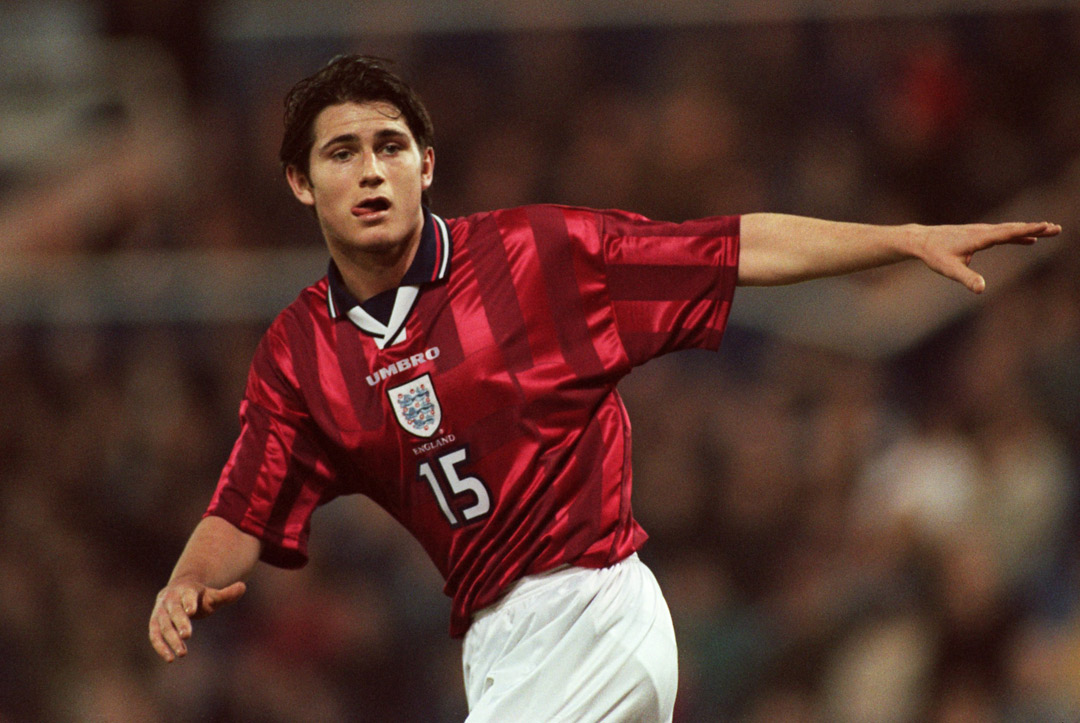
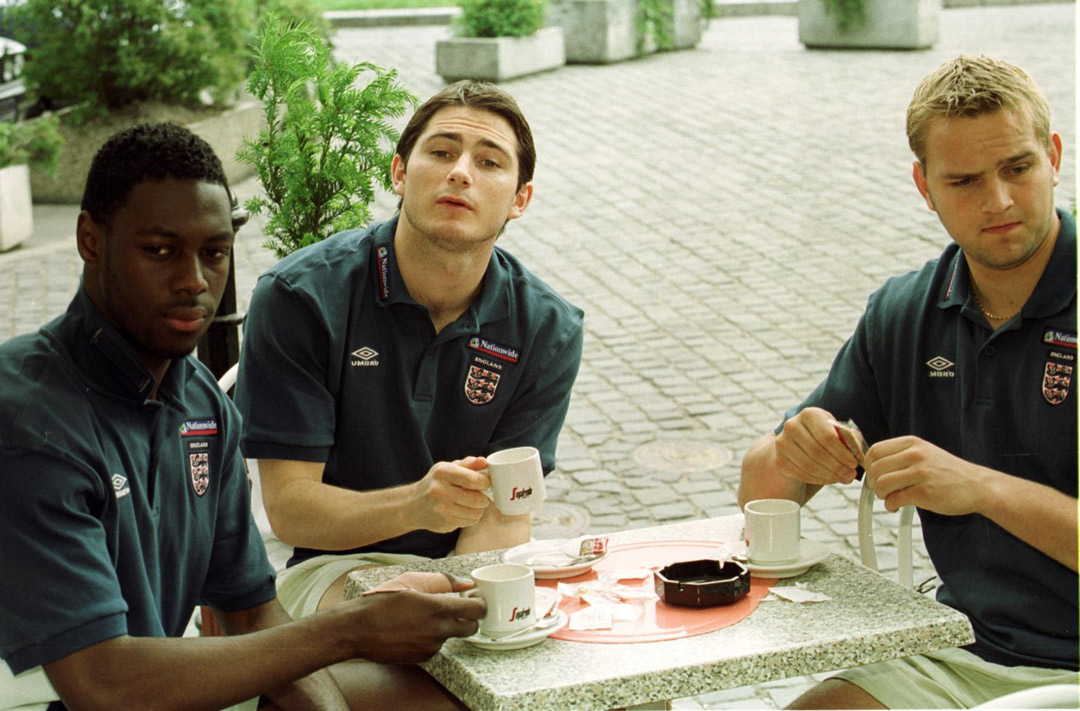
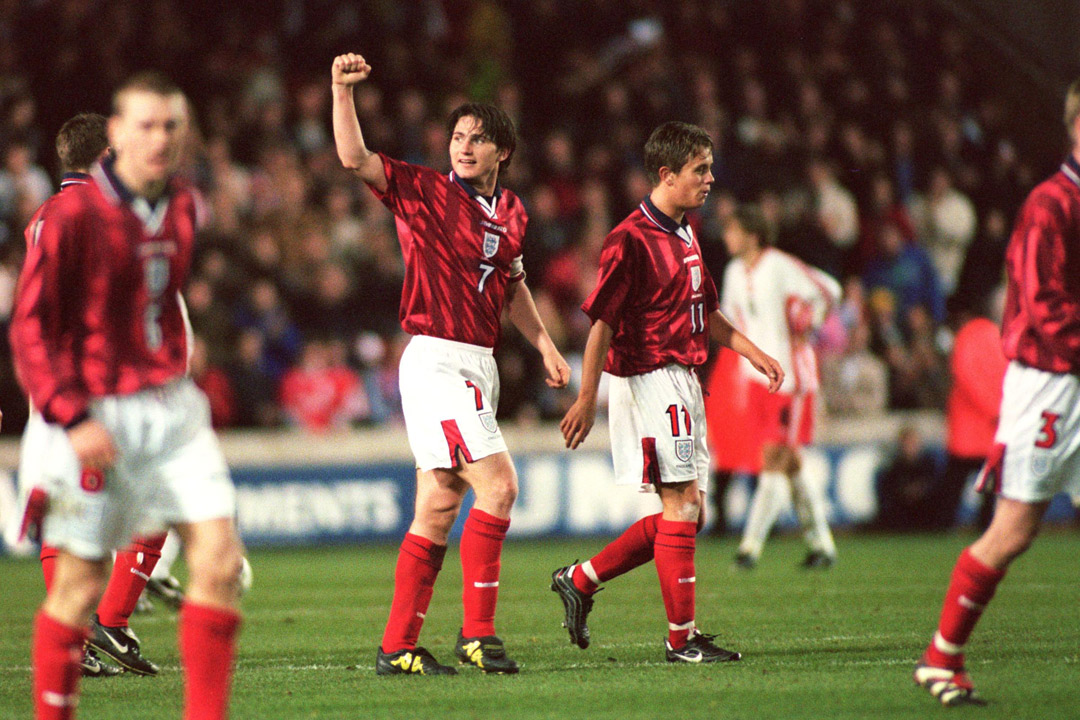
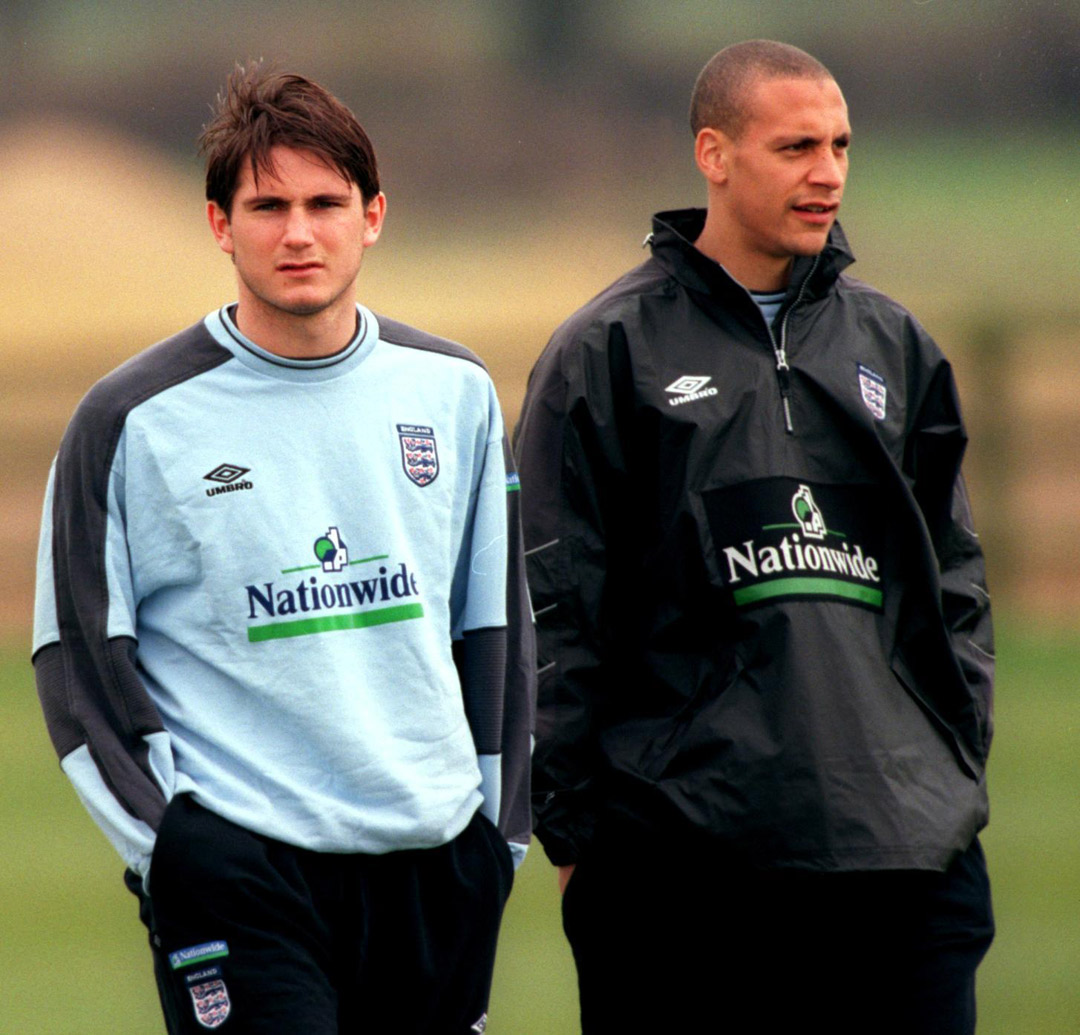
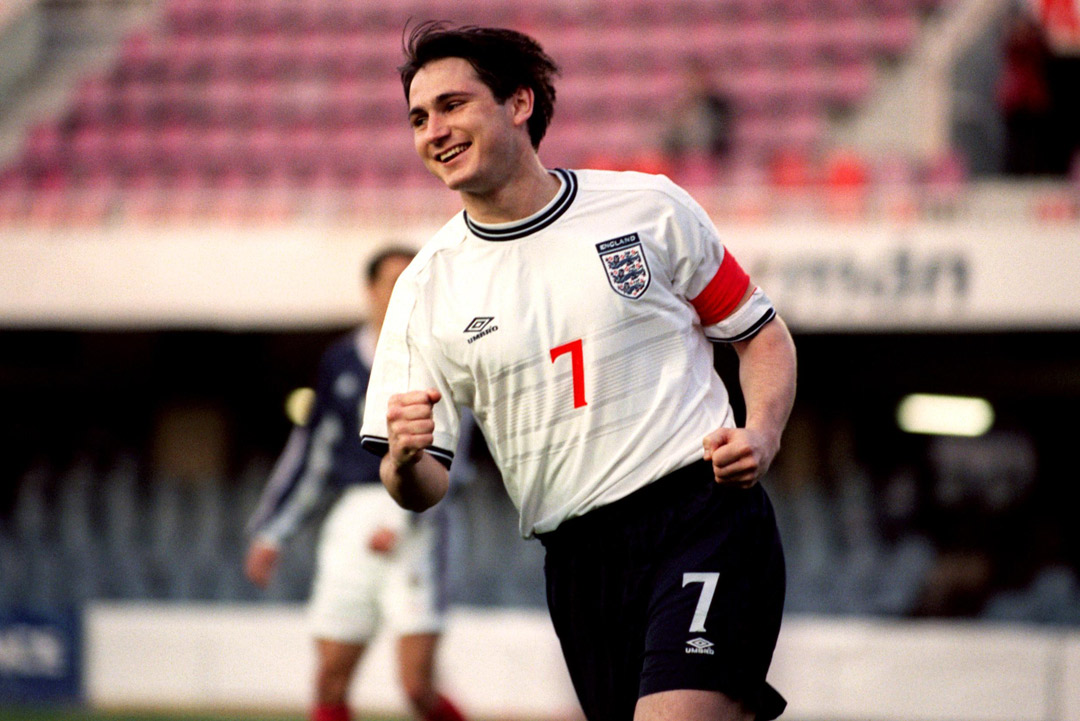
It was only a matter of time before a young Lampard was called up for senior duty.
Get FourFourTwo Newsletter
The best features, fun and footballing quizzes, straight to your inbox every week.
Kevin Keegan gave the West Ham star his big break for England, starting the 21-year-old Lampard in England's 2-1 friendly win over Belgium at Sunderland's Stadium of Light in October 1999.
He lined up alongside cousin Jamie Redknapp in midfield - and it was the latter who grabbed the headlines with a 66th-minute winner for a top, top day all round.
Trevor Sinclair, meanwhile, played just 12 times for England. It took until 2001 for his debut, though he did feature four times at the 2002 World Cup as a last-minute replacement for Danny Murphy. In fact, he was rather good on the left wing - but it didn't get much better than that.
Lampard was overlooked for a squad place at Euro 2000 and the 2002 World Cup but his time would come.
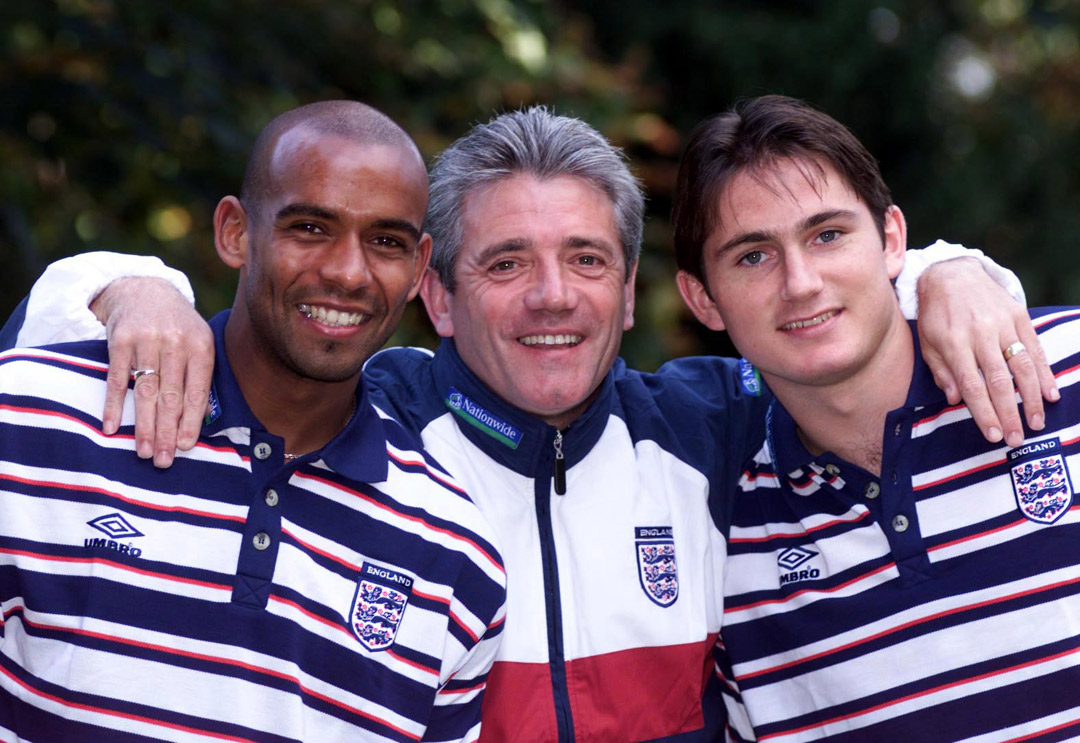
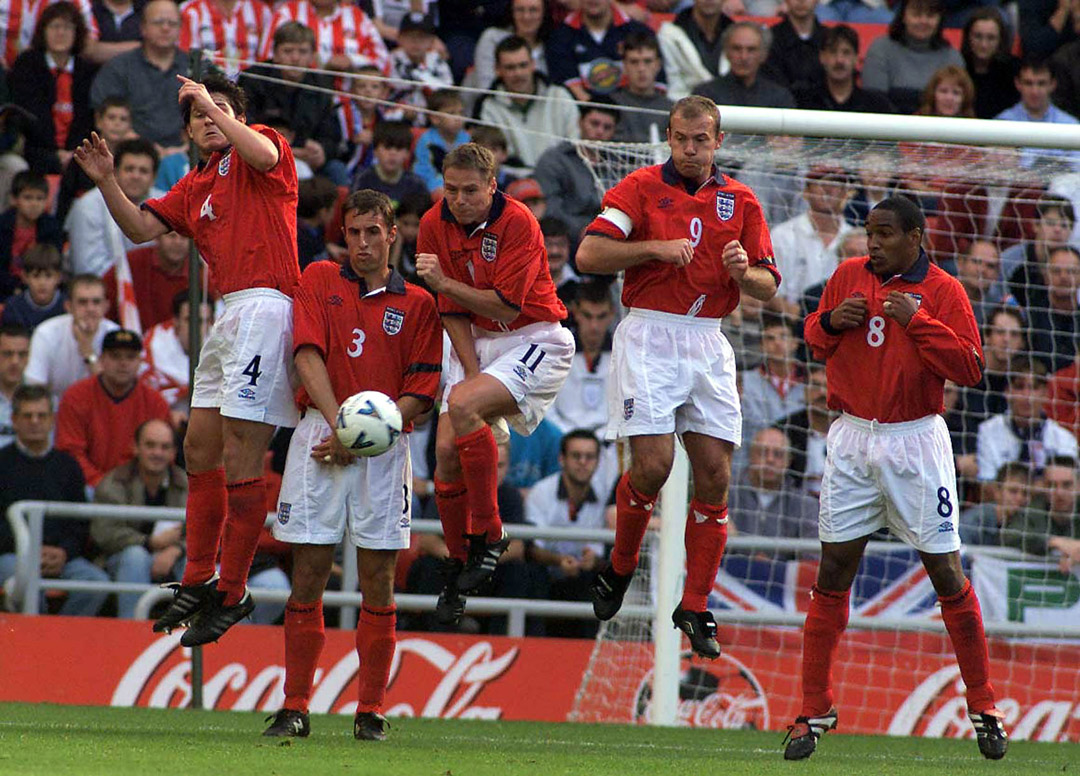
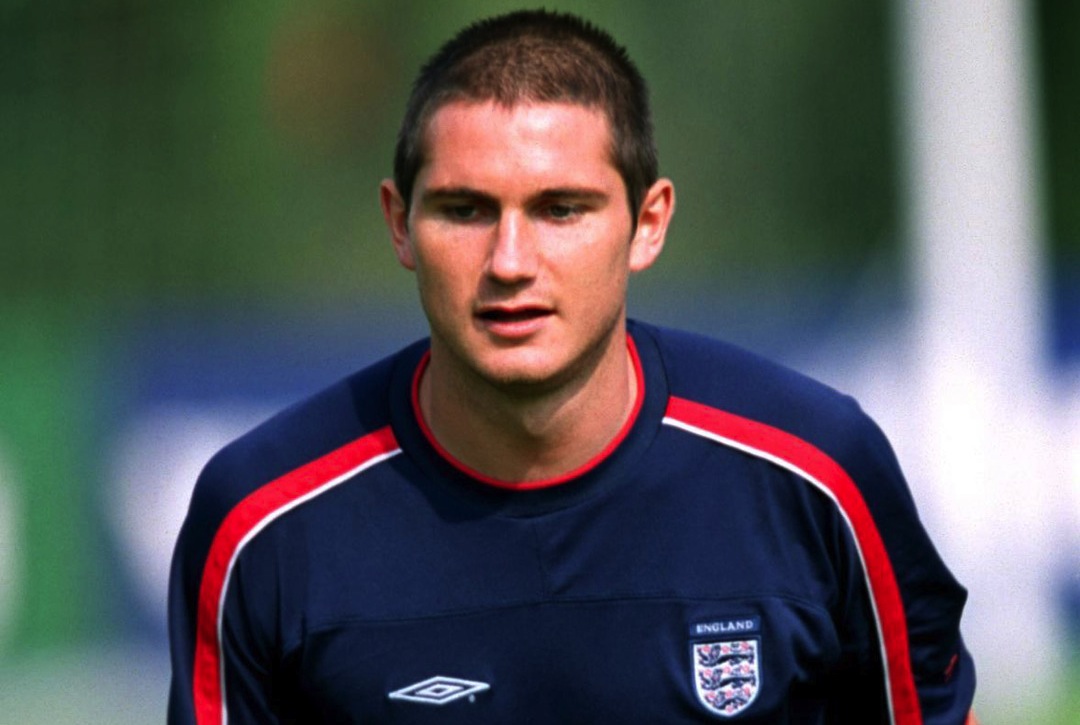
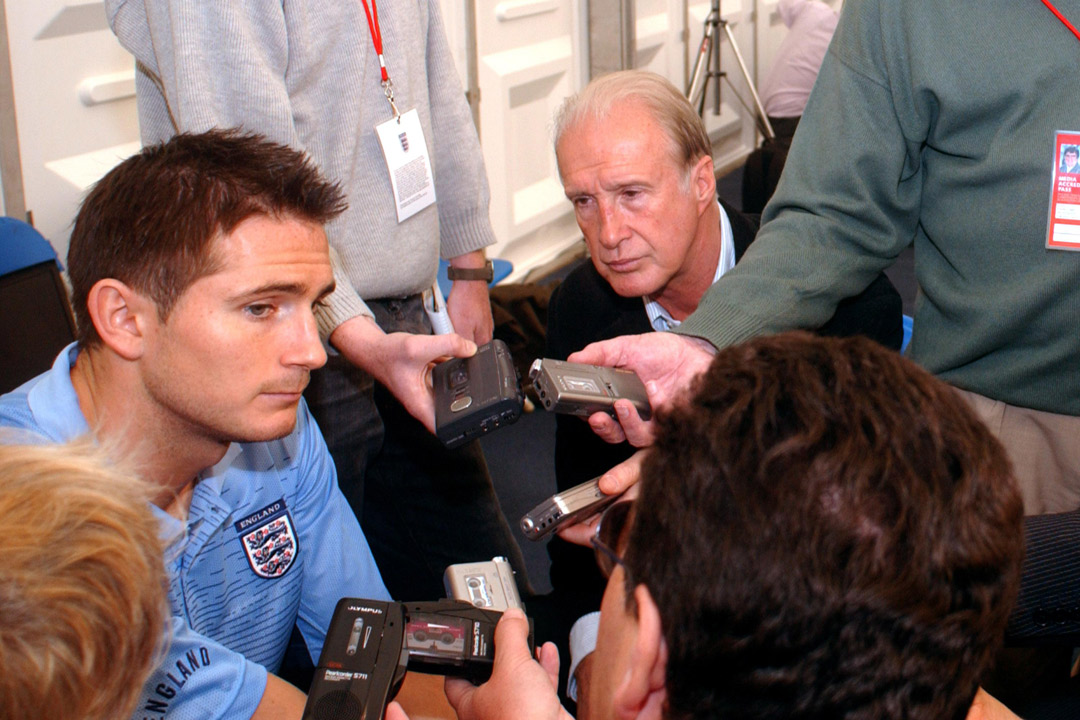
After missing out on consecutive major tournament squads despite nudging his way into contention, Lampard finally became a key fixture for England leading up to the 2003/04 campaign.
Though his previous tournament exclusions were perhaps surprising given his regularity in Ranieri's Chelsea side, it did take Jose Mourinho's arrival for Lampard to truly thrive. In the Portuguese's first season Lampard netted 10 league goals, a figure he's never failed to at least match in the following nine seasons.
Unsurprisingly, Lampard's goal record for England is impressive. With 29 net-ripplers he's just one off the likes of Alan Shearer, Tom Finney and Nat Lofthouse - albeit from more games.
The first of those came against Croatia in August 2003 when he scored England's third - a typically well-struck 25-yard drive - in their 3-1 win at Portman Road.
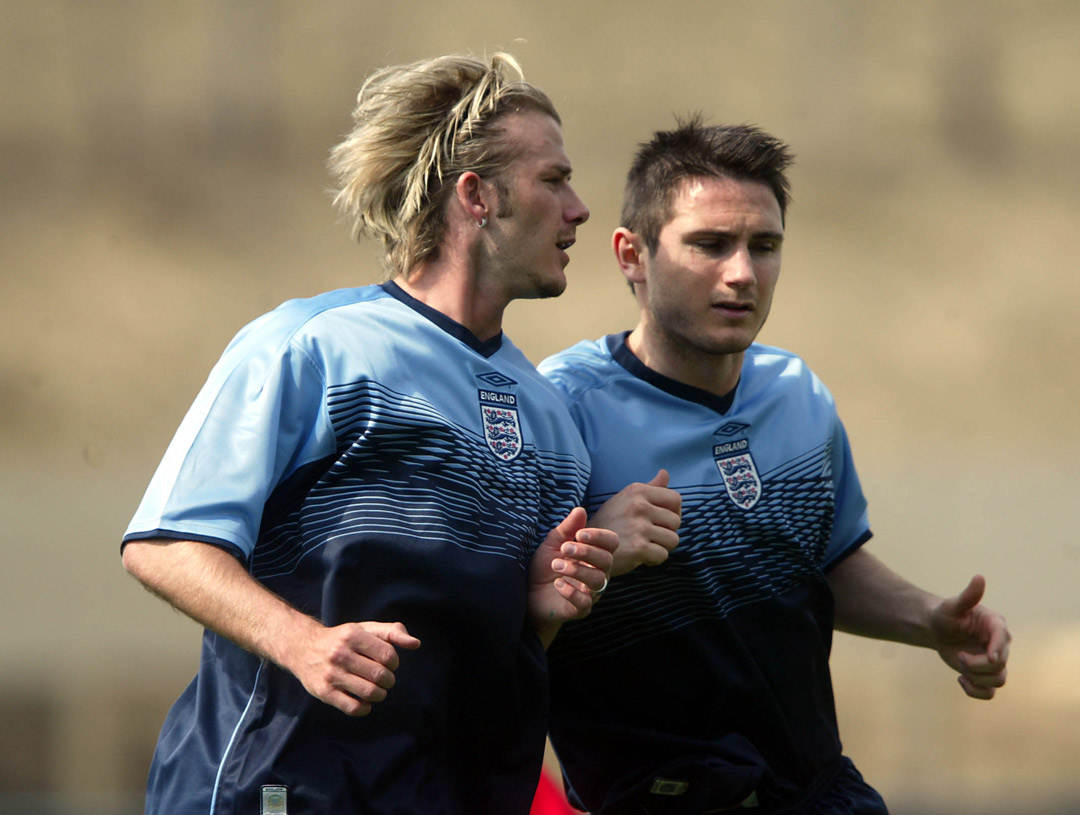
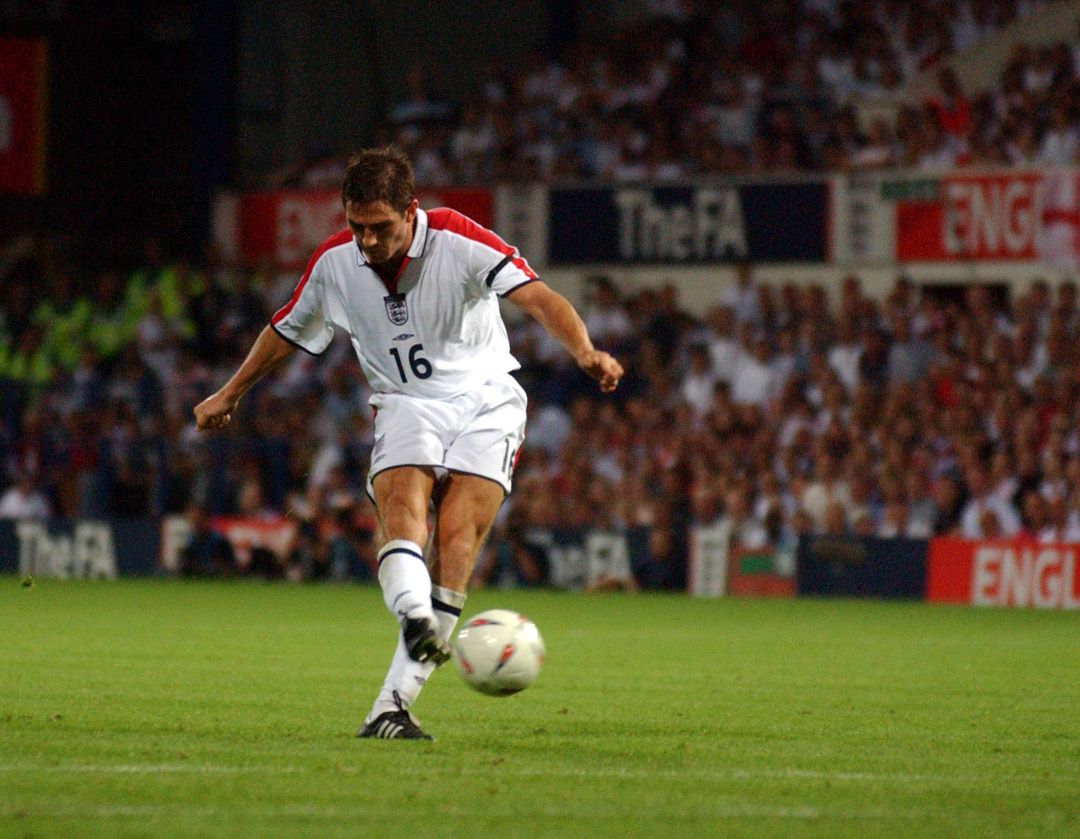
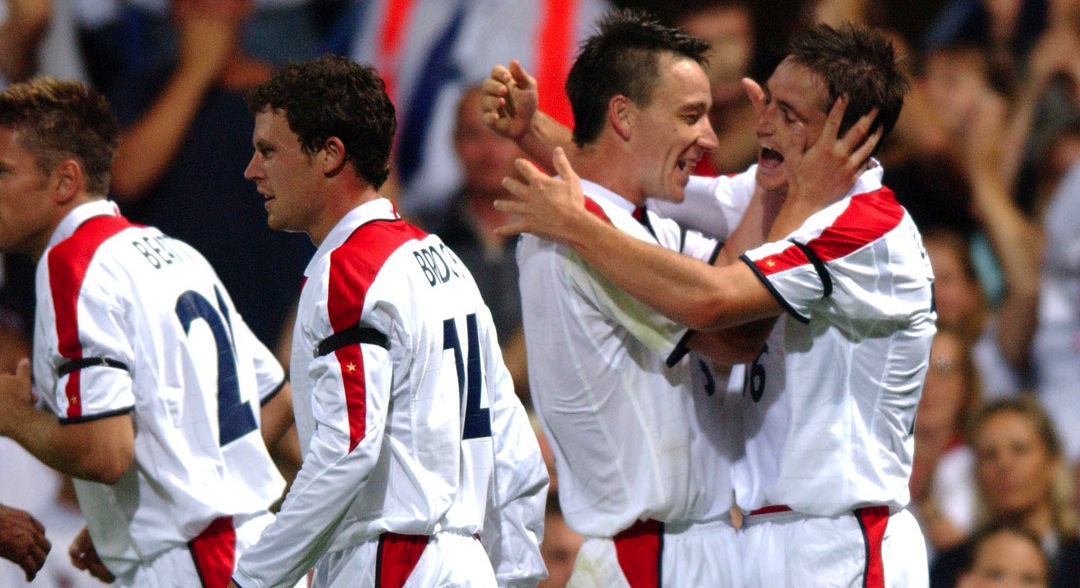
Euro 2004 was Lampard's first major tournament as an England player - and a memorable one.
The midfielder thought he'd got Sven-Goran Eriksson's men off to a dream start when he headed home David Beckham's pinpoint cross past a helpless Fabien Barthez. But, after Becks saw a second-half penalty saved, Zinedine Zidane made England pay with a late, late brace in Lisbon.
England saw off Switzerland in game two, and got the job done against Croatia in their final fixture to progress to the knockout stage. Wayne Rooney announced himself to international football with a terrific brace before Lampard added the fourth of the night - and his second of the tournament.
His third was the most crucial, but ultimately in vain. Portugal were England's last-16 opponents in Lisbon and, after a 1-1 draw, took the lead in extra time through Rui Costa. Lampard fired home an extra-time leveller to force a shootout; he scored rom the spot, but Ricardo saved Darius Vassell's spot-kick before netting his own to send Sven's men home.
Nevertheless, Lampard was named in UEFA's team of the tournament.
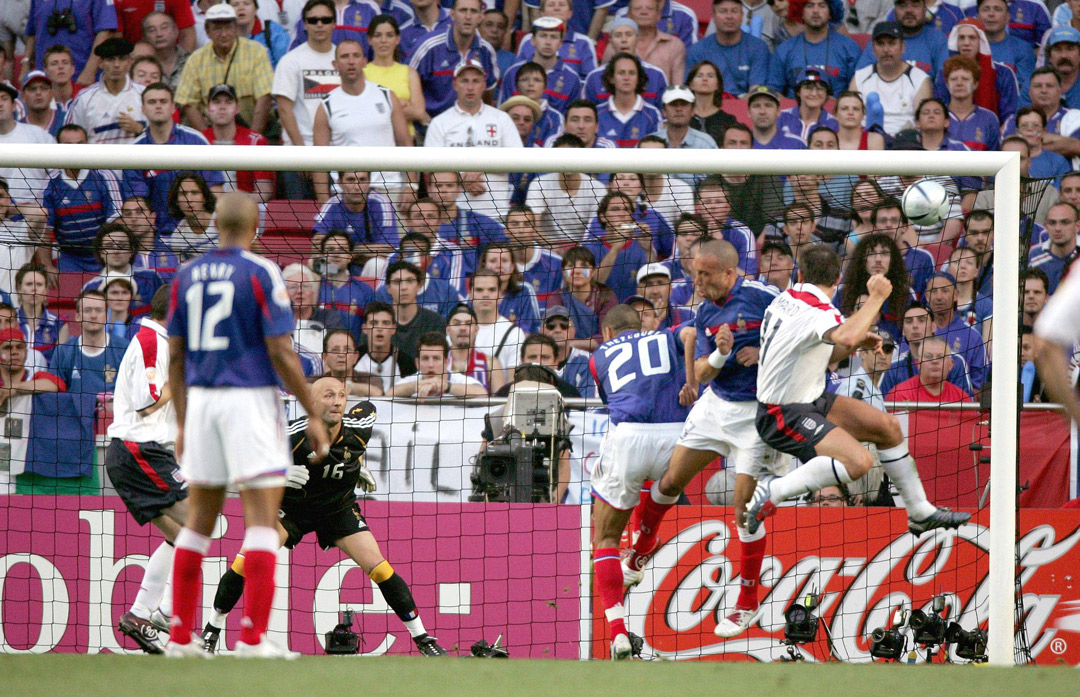
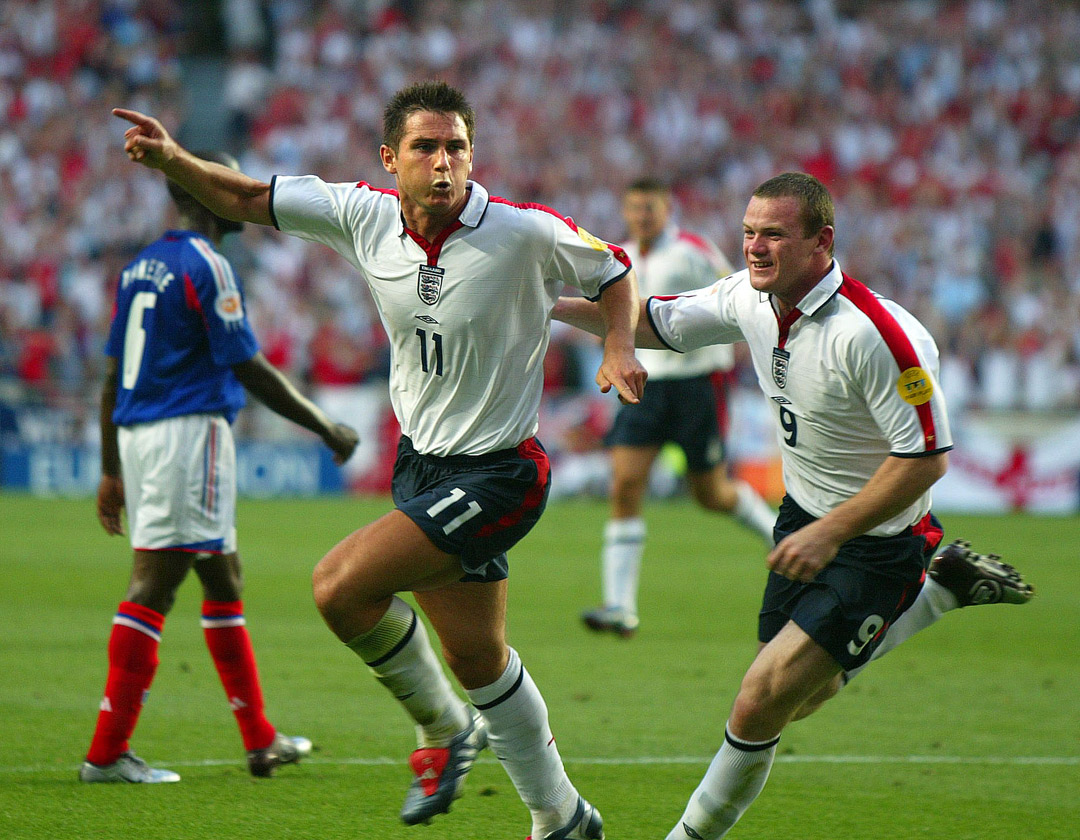
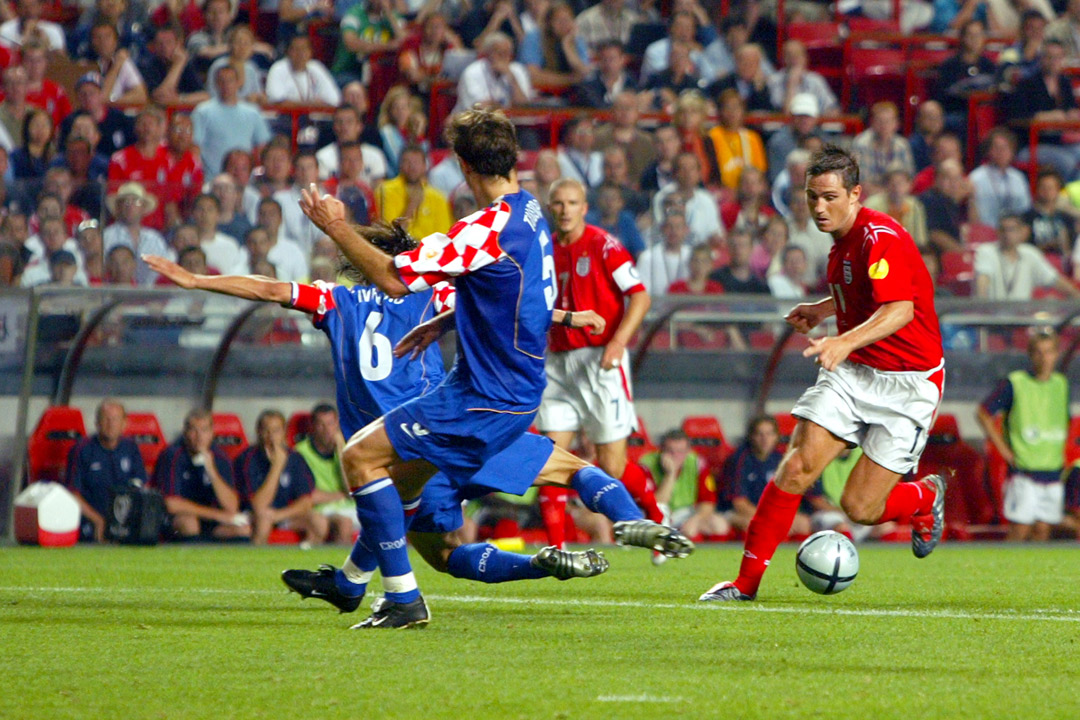
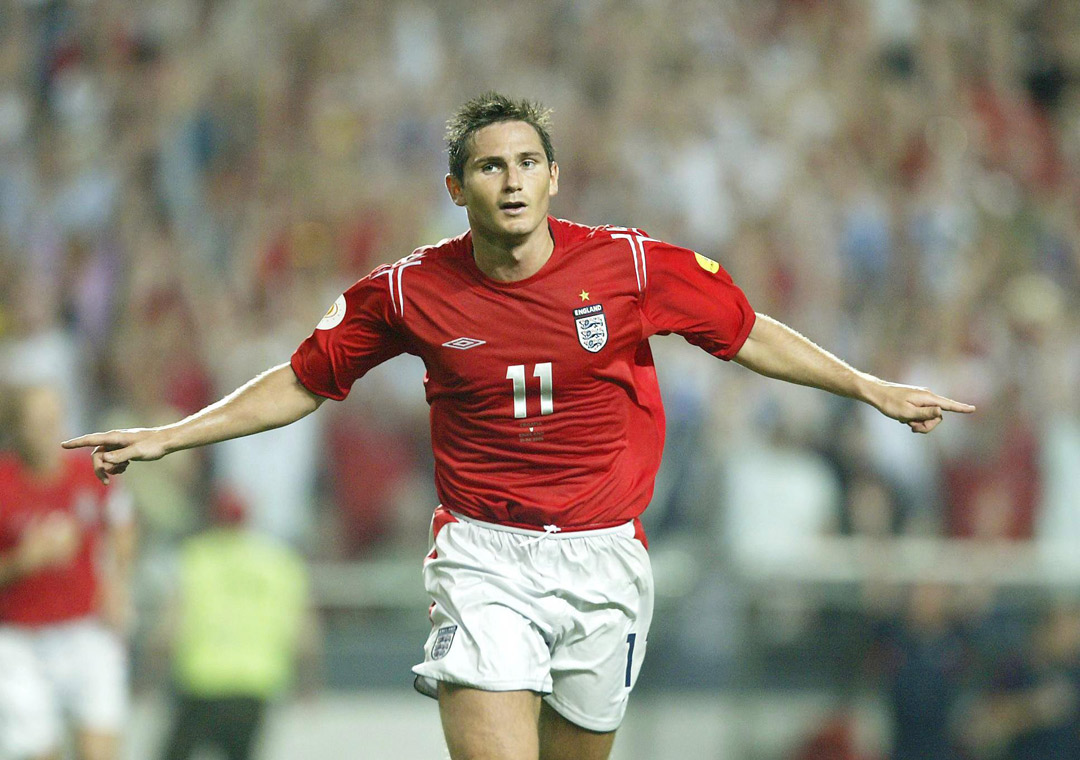
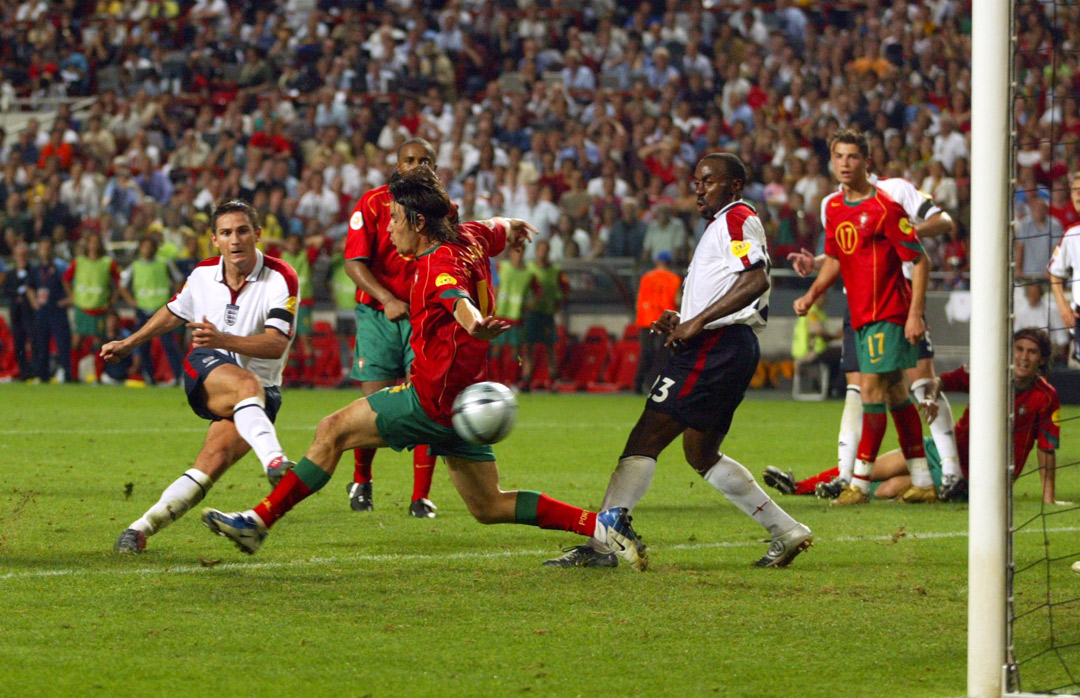
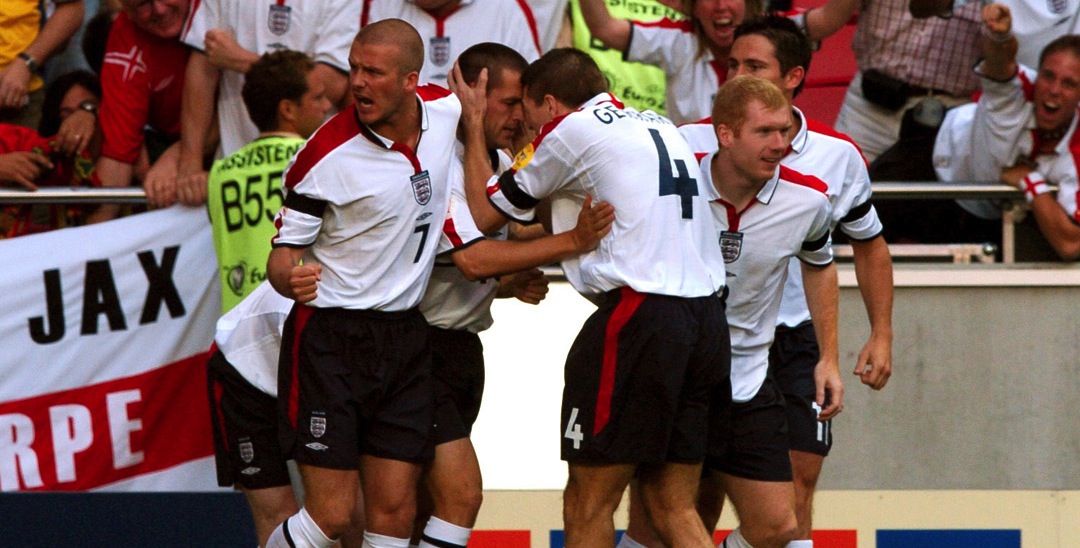
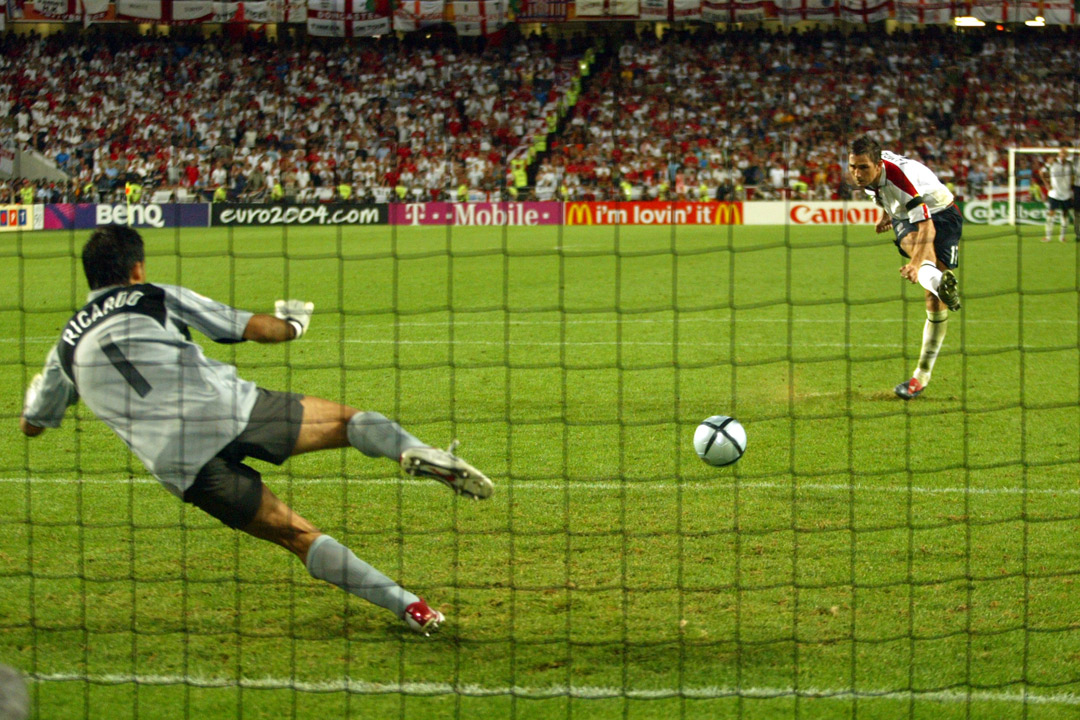
By late 2005, Lampard was one of England's standout performers, and a regular after Paul Scholes' international retirement.
After scooping the prize for England's player of the year in 2004 (as voted for by the fans), the Chelsea man was at it again a year on with the 2005 prize.
He was England's top goalscorer in 2006 World Cup qualification with five goals, bagging crucial winners against Austria and Poland as Eriksson's side comfortably reached the Finals in Germany.
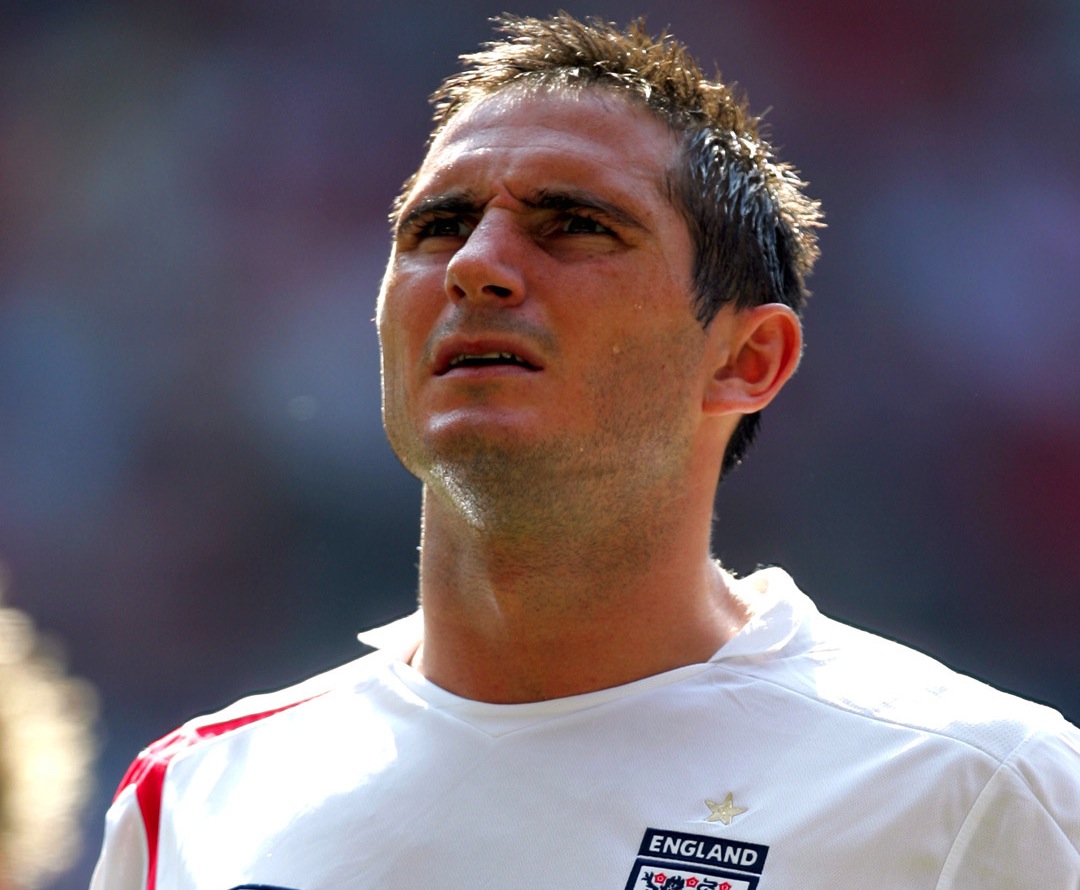
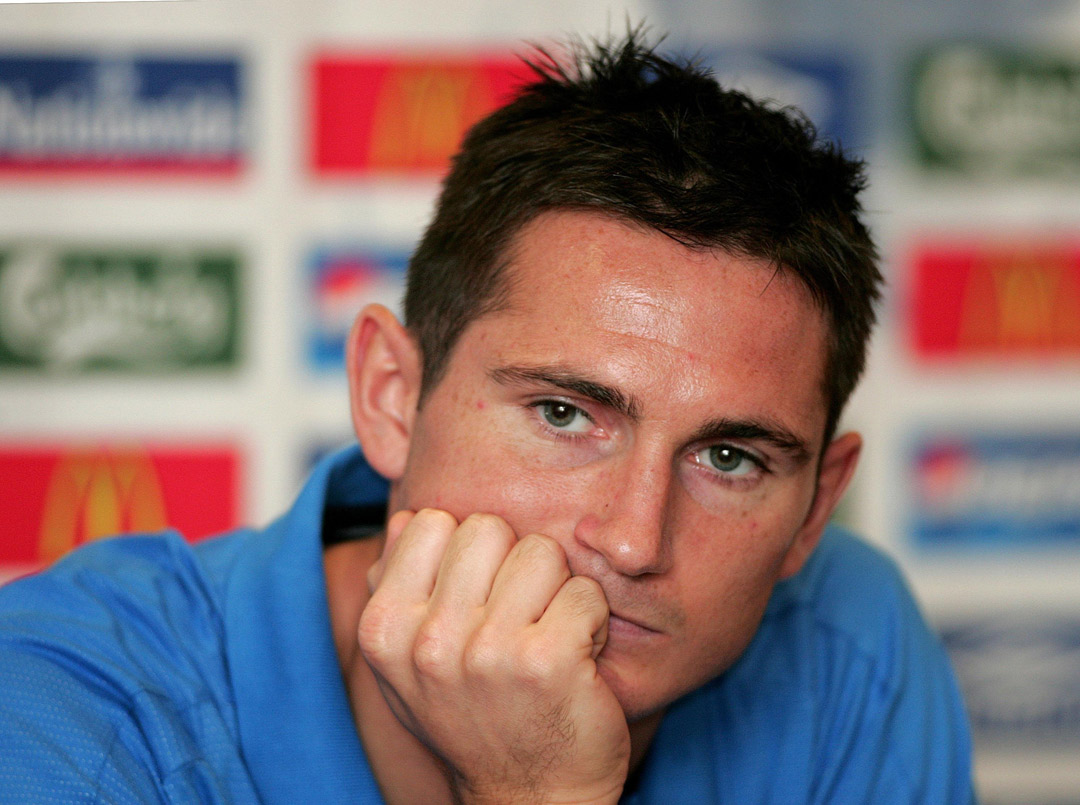
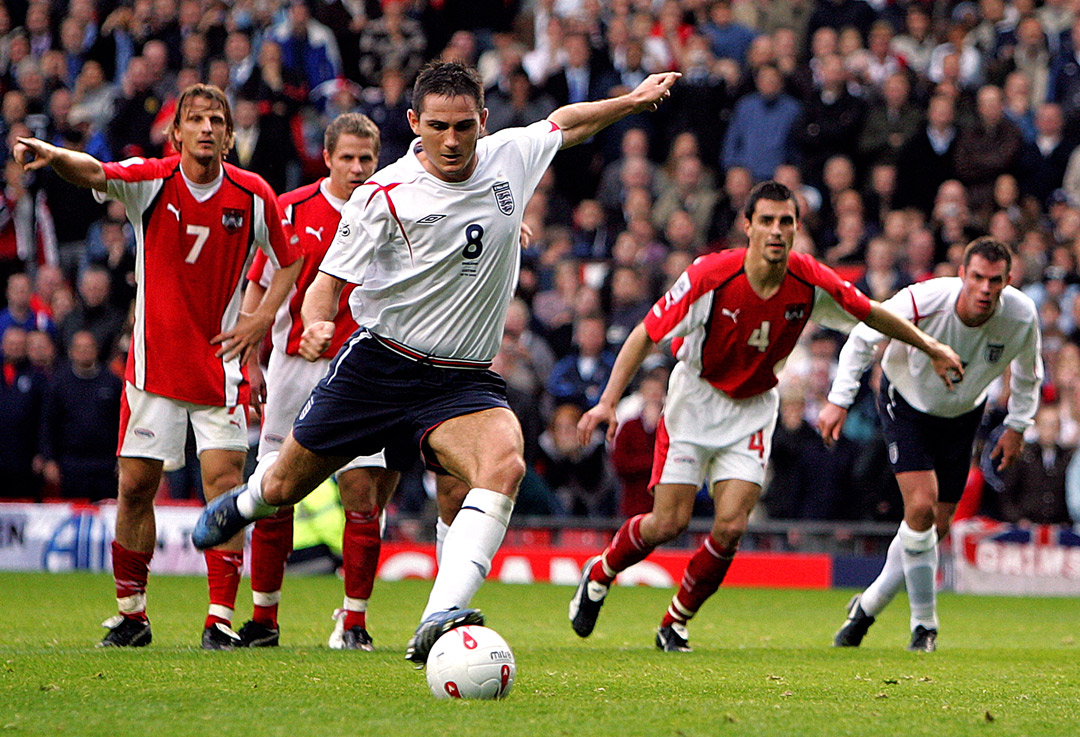
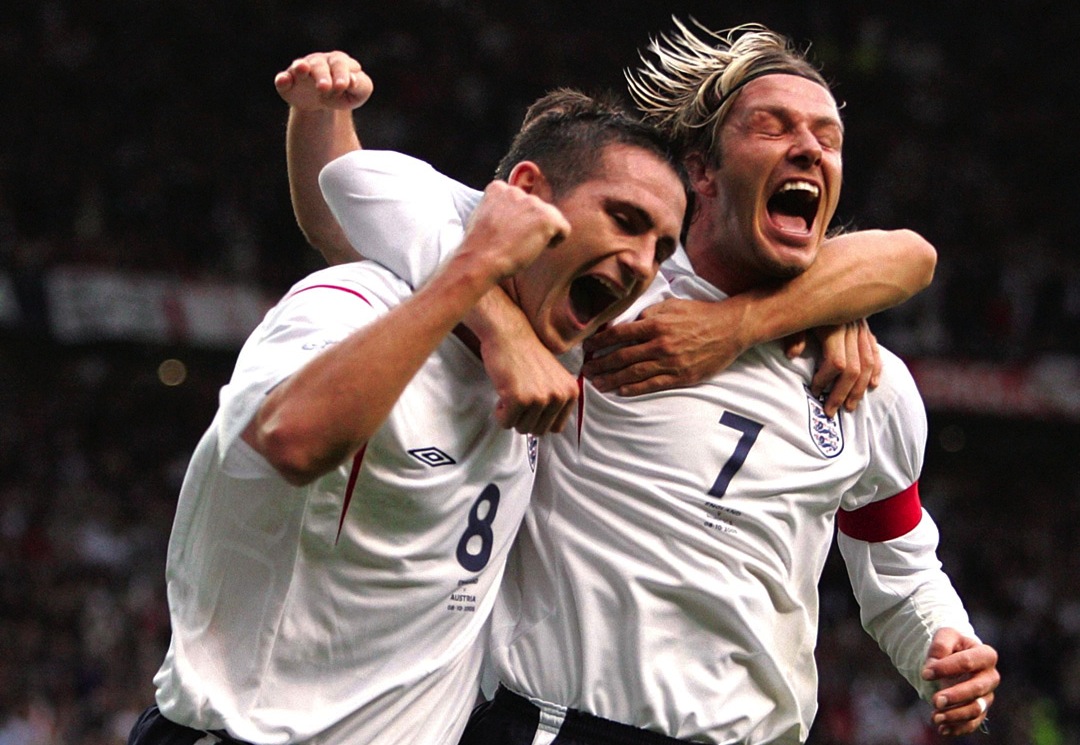
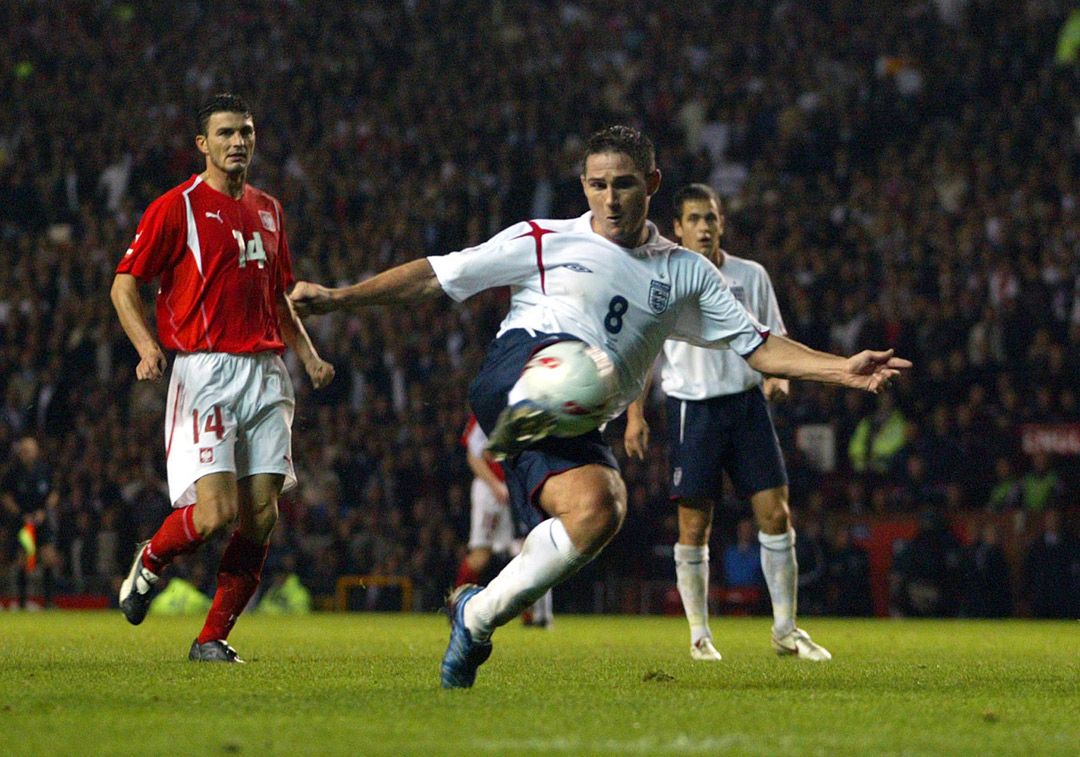
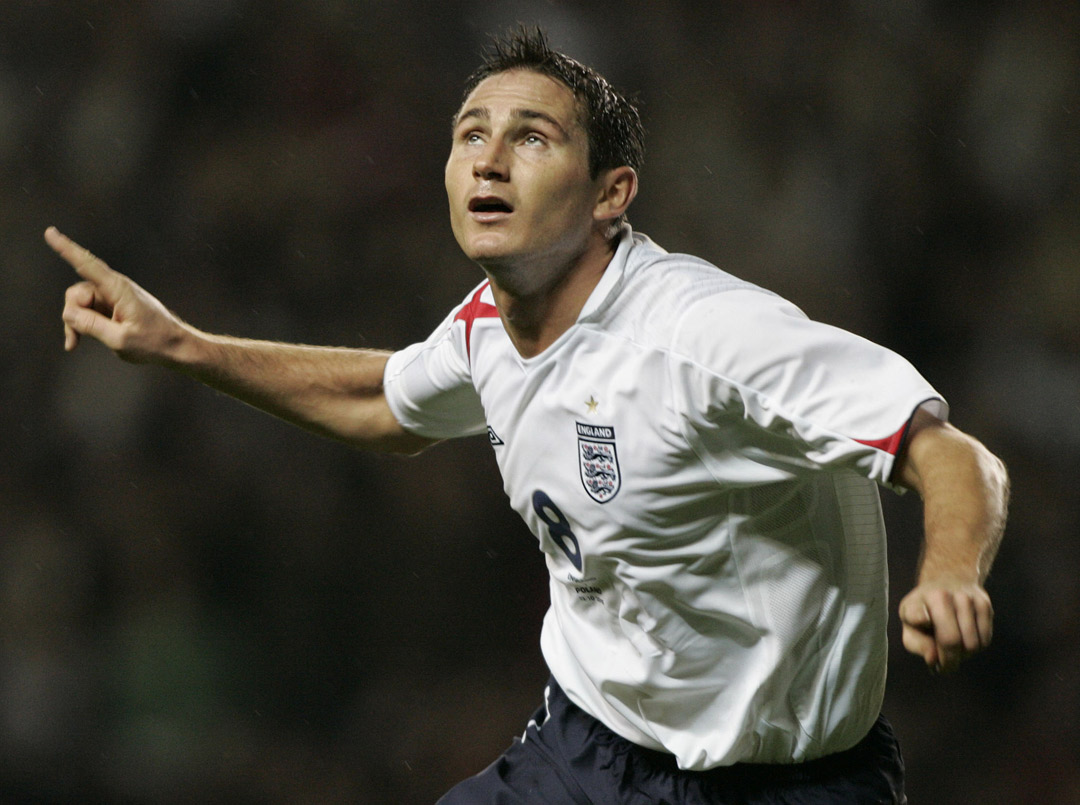
Another summer, and a second major tournament for Lampard in Germany's 2006 World Cup.
Having scored 16 goals in 35 league appearances as Chelsea lifted the 2005/06 Premier League title, hopes were high for England's goal-getting midfielder.
Unlike his dazzling tournament two years prior, however, Germany would be a more disappointing experience for Lampard.
It started well, though. In England's group opener against Paraguay he was a fitting man of the match in an otherwise dismal clash won by Michael Owen's early effort.
But despite playing in each of the Three Lions' five games he finished goalless - and his misfiring would prove costly.
England's quarter-final against Portugal (again) would go to penalties (again), but this time Lampard missed his spot-kick. Unfortunately so did Steven Gerrard and Jamie Carragher, as Sven's side were sent packing (again). Sigh.
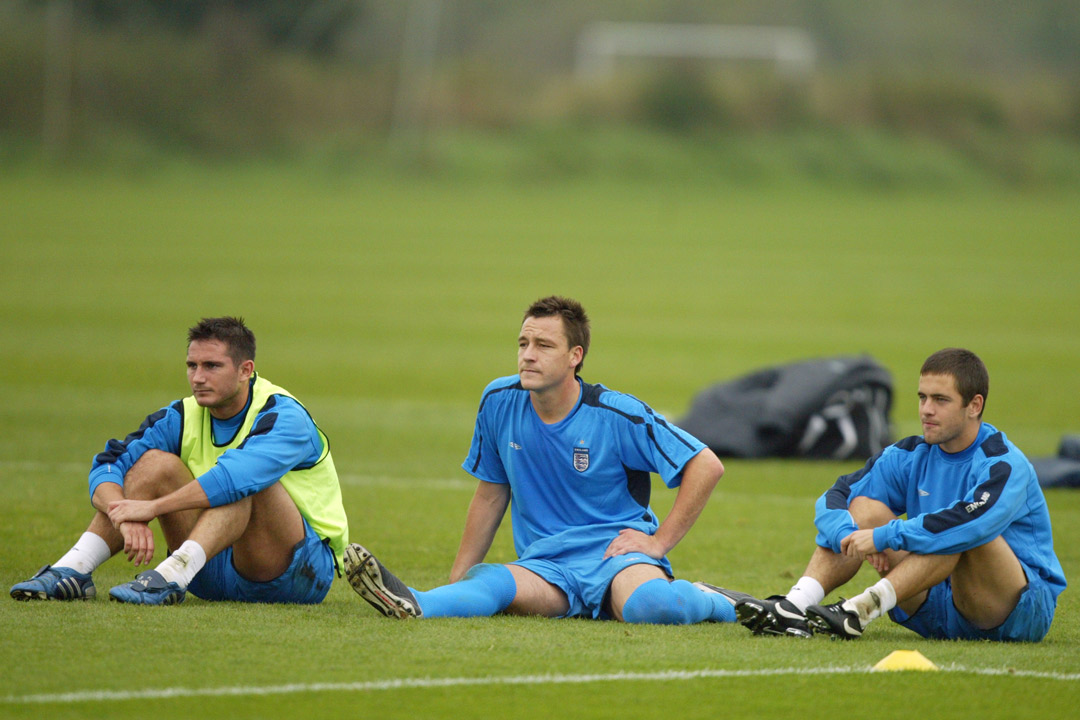
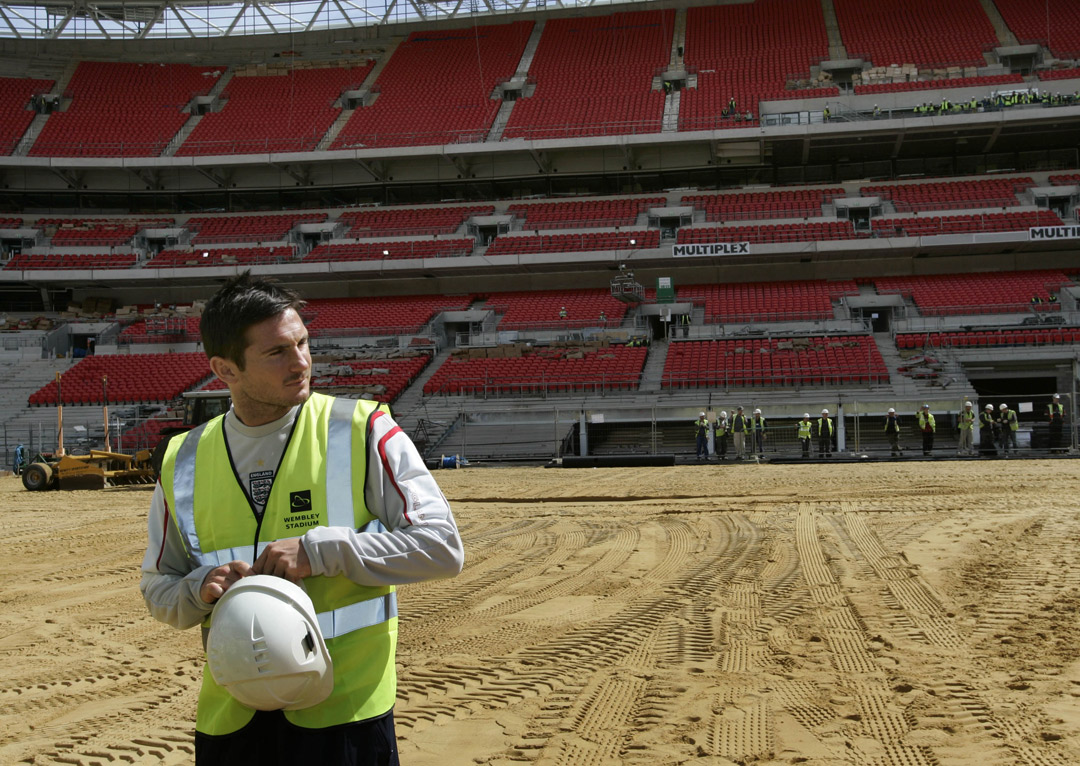
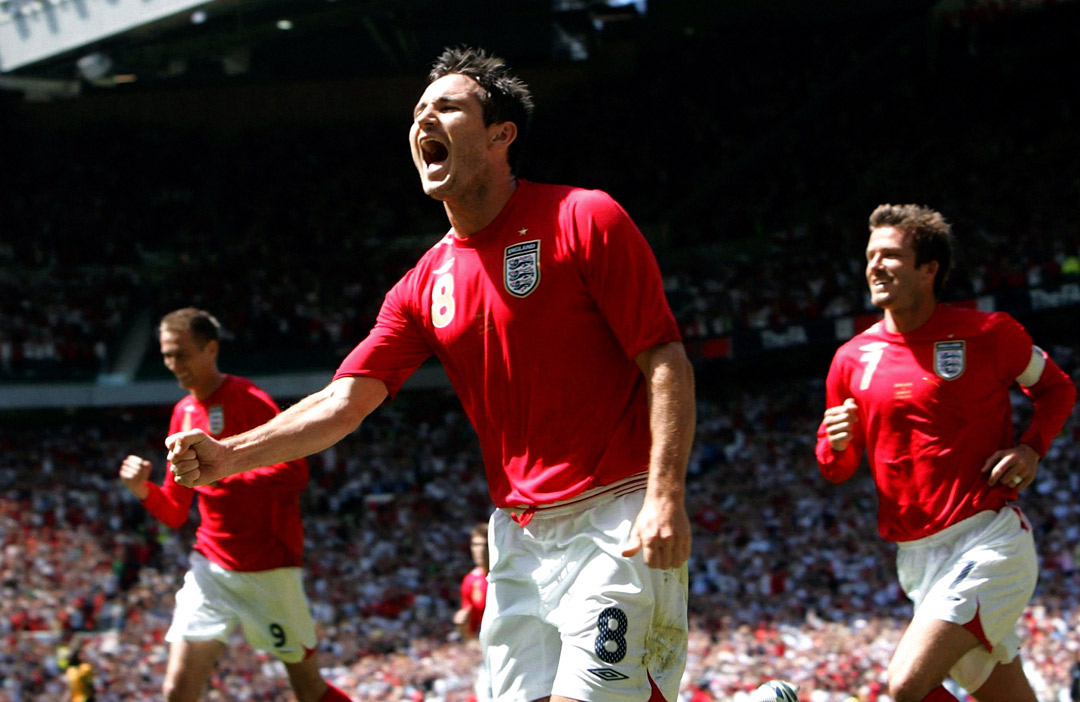
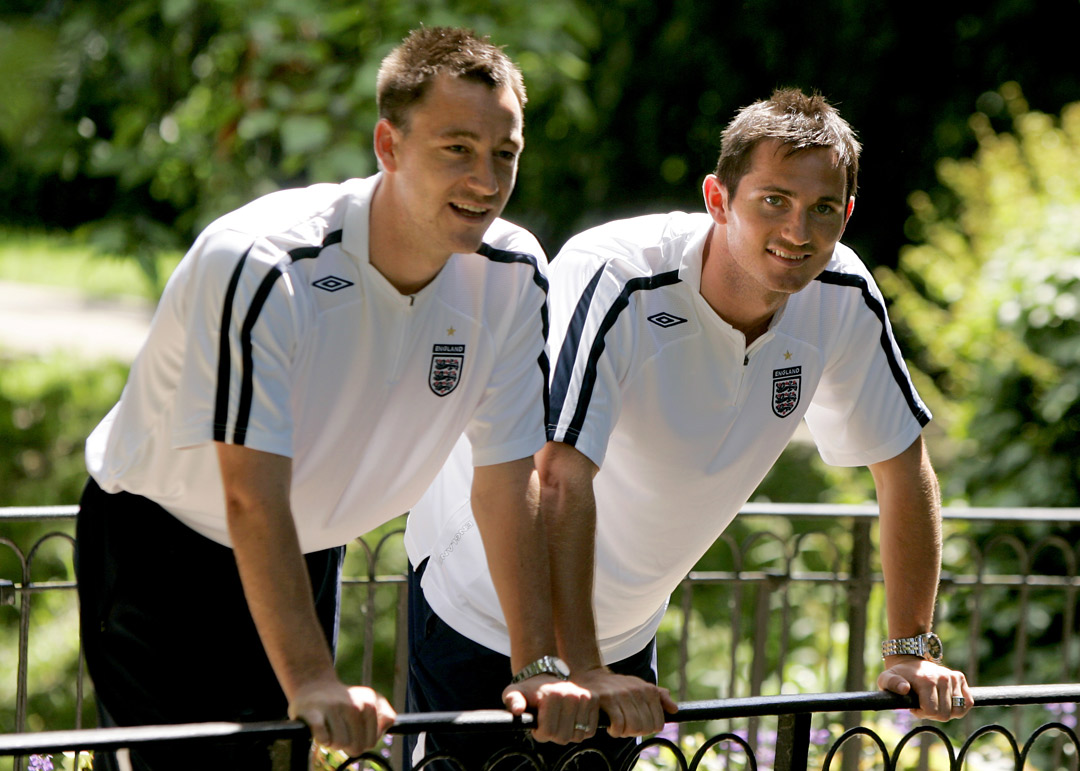
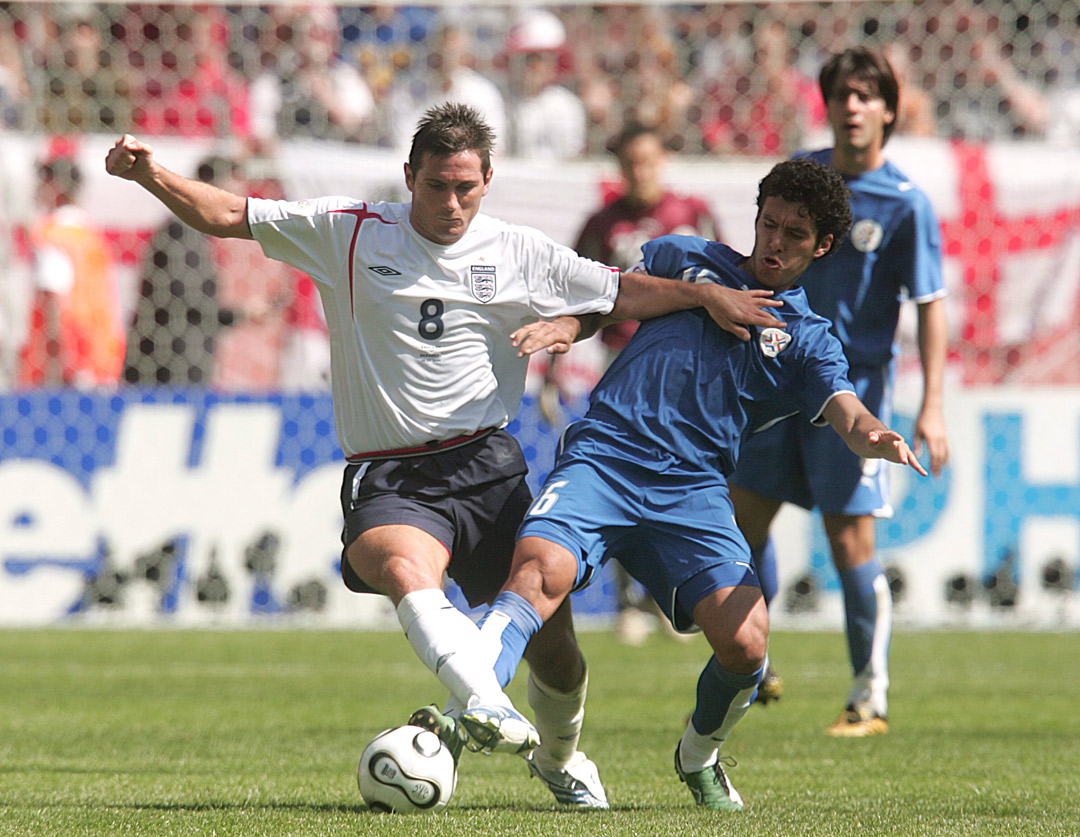
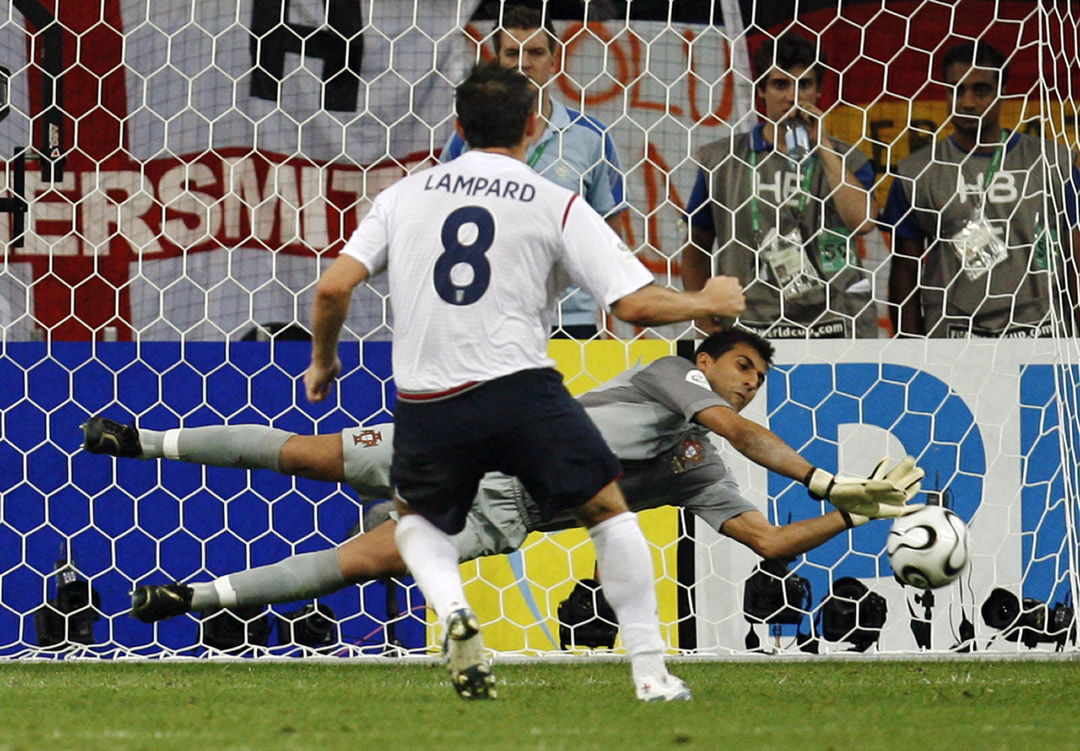
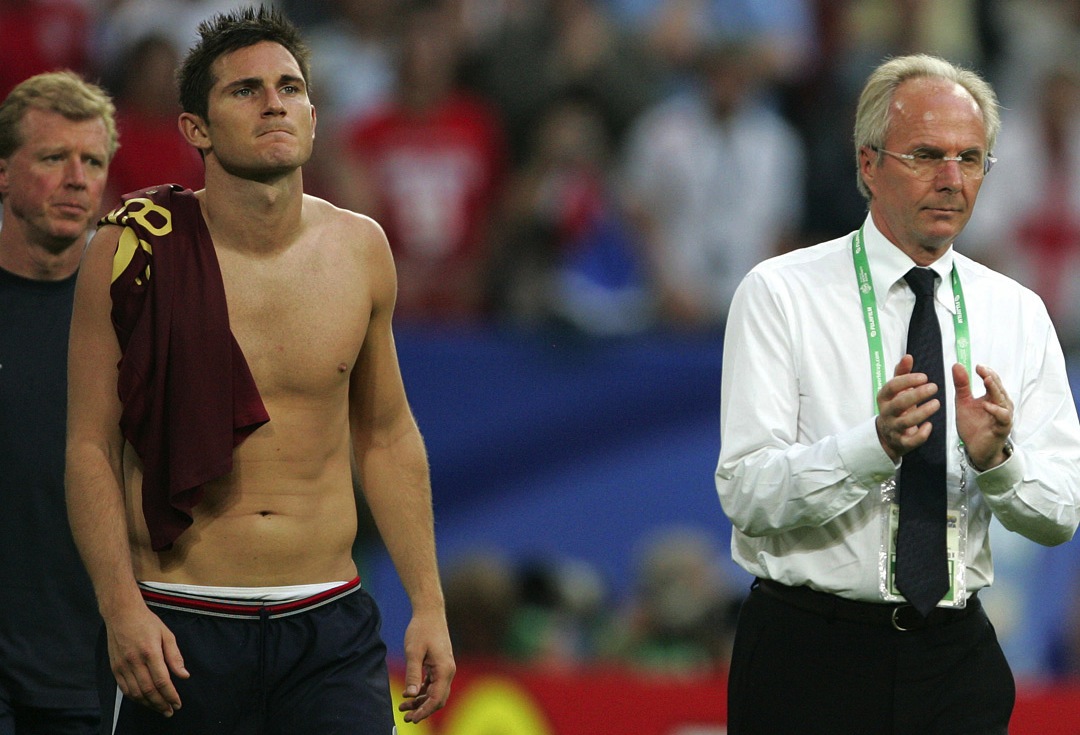
While Lampard continued to thrive in Chelsea colours in between major tournaments, his international career wasn't so rosy as England failed to qualify for Euro 2008.
A year on from World Cup disappointment in Germany he ended a 12-month goal drought by scoring against the former hosts in England's 2-1 defeat to the former hosts - their first loss at the new Wembley.
As his international career (and those around him) stuttered, Lampard's woes were compounded when he was dropped for a home qualifier against Estonia - the first time in four years he'd been demoted to the bench - and then booed as he replaced Michael Owen. England fans were criticised by Lampard's stunned team-mates - but thankfully that was the end of that.
He finished the qualifying campaign with just one goal as Steve McClaren's side failed to reach the Austria-Switzerland Finals.
Lampard, and England, came back stronger. He ended a two-year wait without a goal in a 4-0 rout of Slovakia in March 2009 - the 500th goal scored by an Englishman at Wembley - and then bagged twice as Fabio Capello's troops sought revenge over Croatia with a 5-1 drubbing. With goals also coming against Andorra and Kazakhstan, the Chelsea man was back in form.
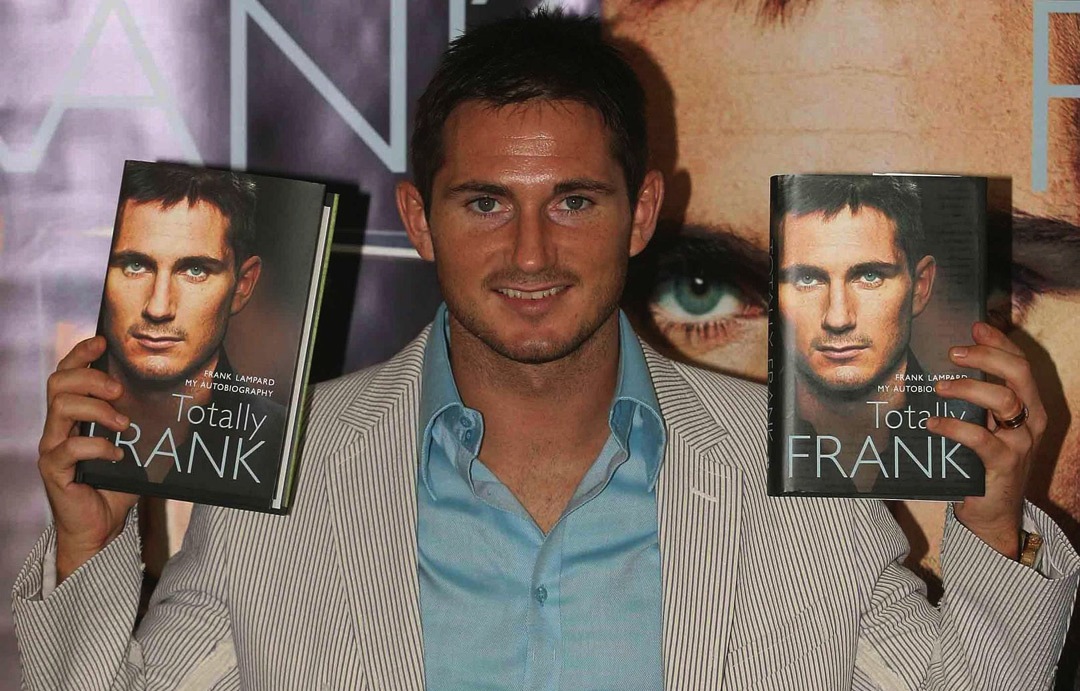
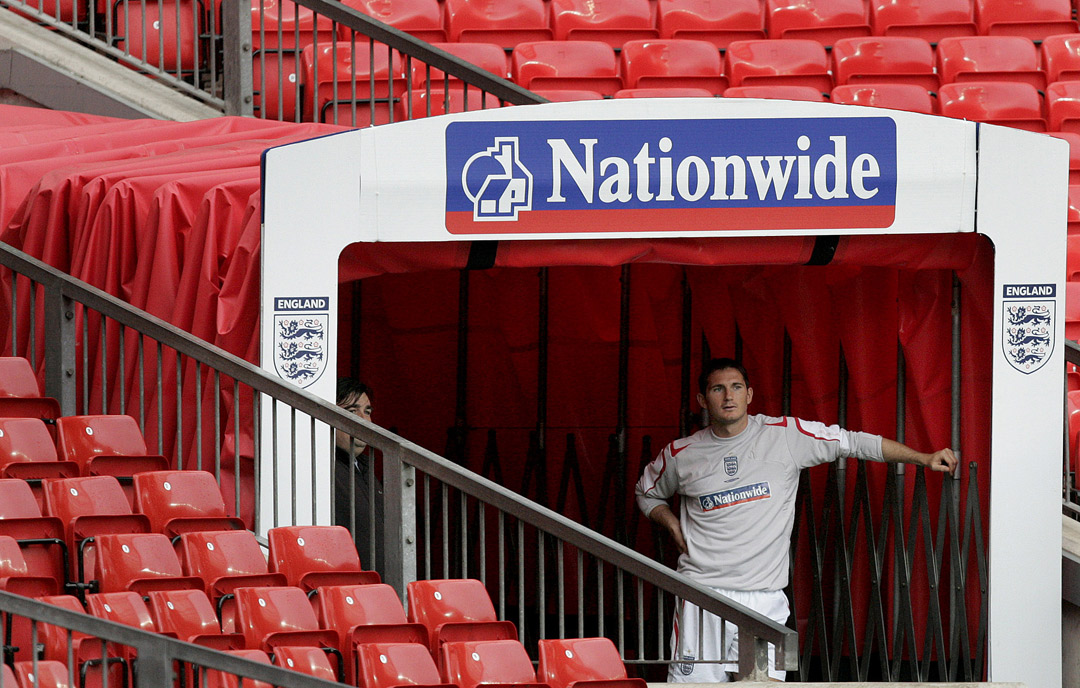
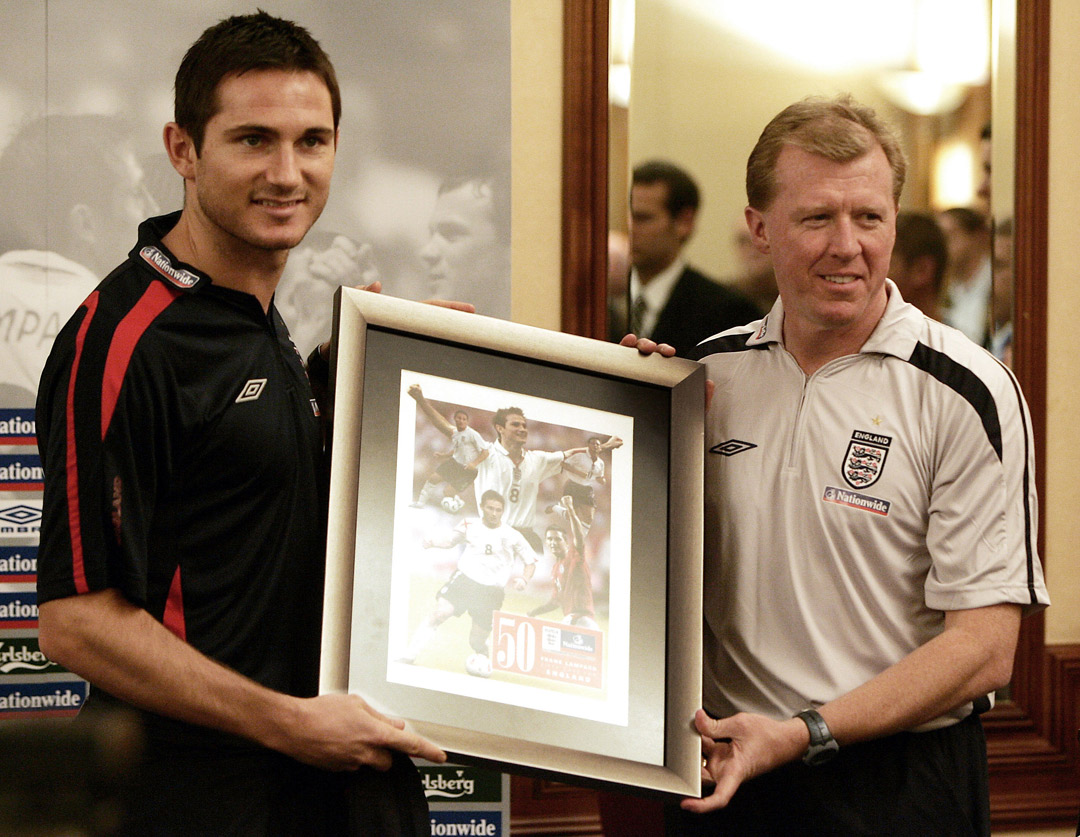
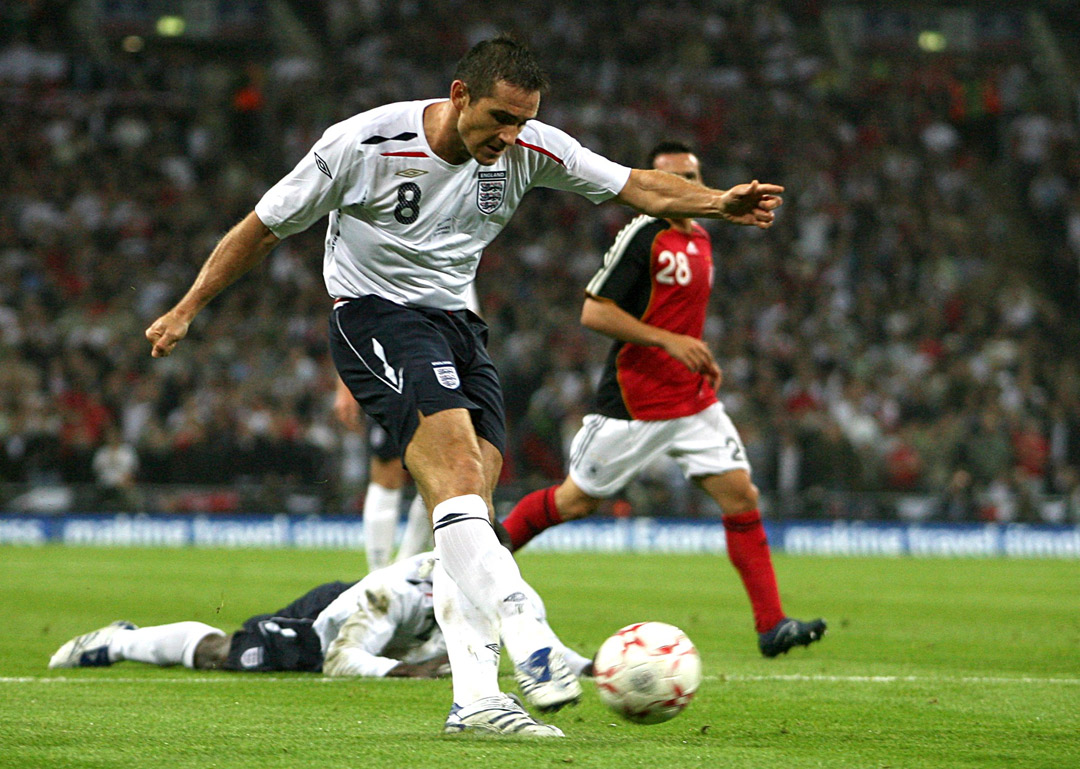
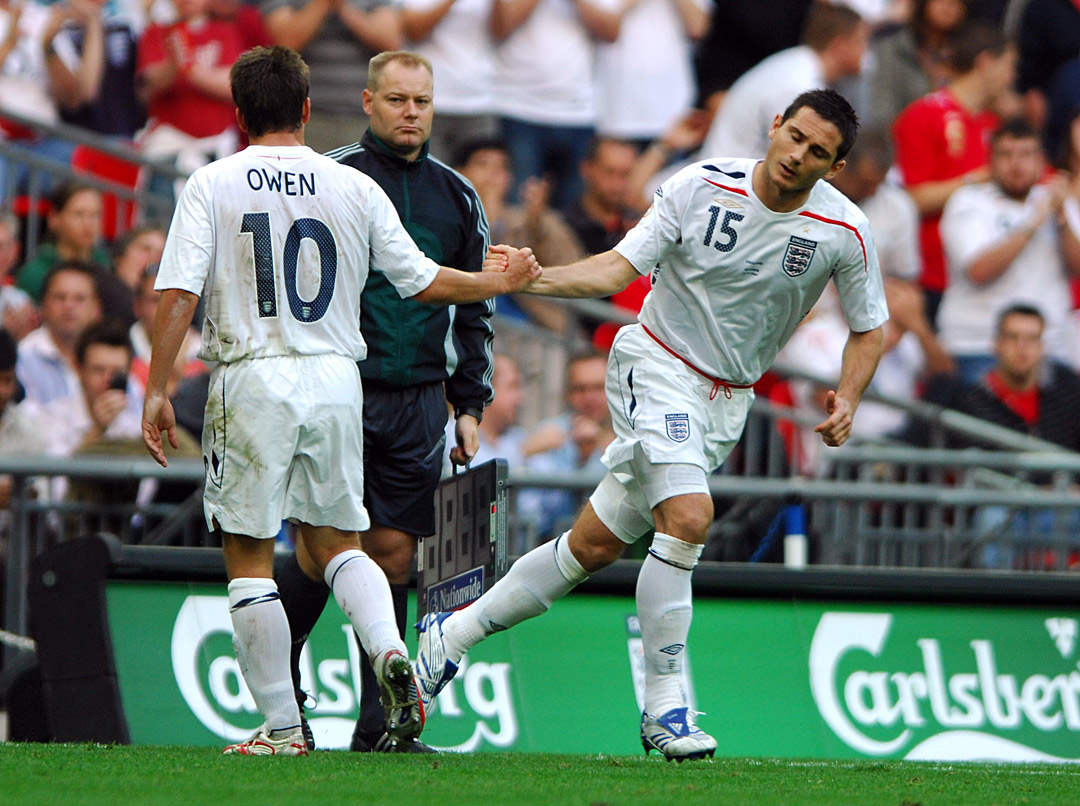
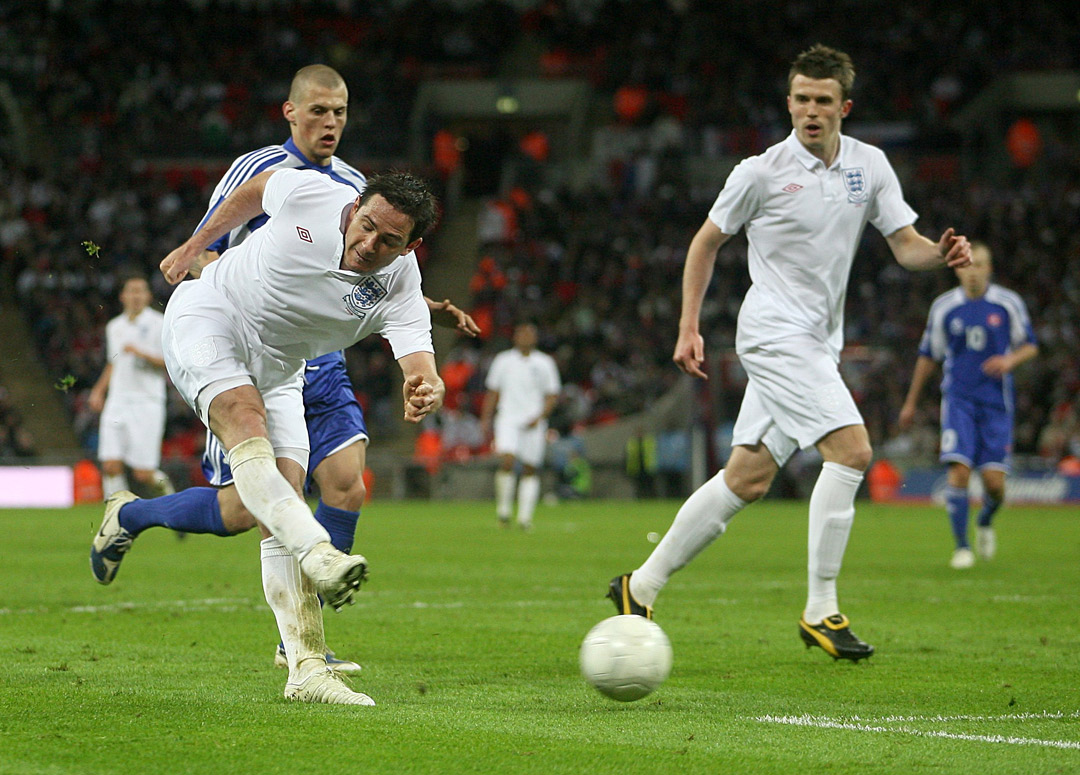
England weren't expected to win the World Cup in South Africa - especially when they were pitted against Germany in the last 16.
Capello's men finished second behind the United States in the group stage, drawing 1-1 with the group winners, squeezing out the dourest of goalless draws with Algeria and then narrowly beating Slovenia in their final match thanks to Jermain Defoe's winner.
England were hopelessly outclassed by the Germans in Bloemfontein but, after getting themselves back in it with Matthew Upson's 37th-minute header, should have pulled level when a Lampard striker beat Neuer, bounced back off the crossbar and, finally, over the line.
Whether it was the ghost of Tofiq Bahramov coming back to haunt England or just plain negligence from the officials, the decision to deny the goal was utterly baffling.
Ultimately the game will be forever remembered by Gareth Barry's horrendous efforts to stop Mesut Ozil as Germany romped to a 4-1 win.
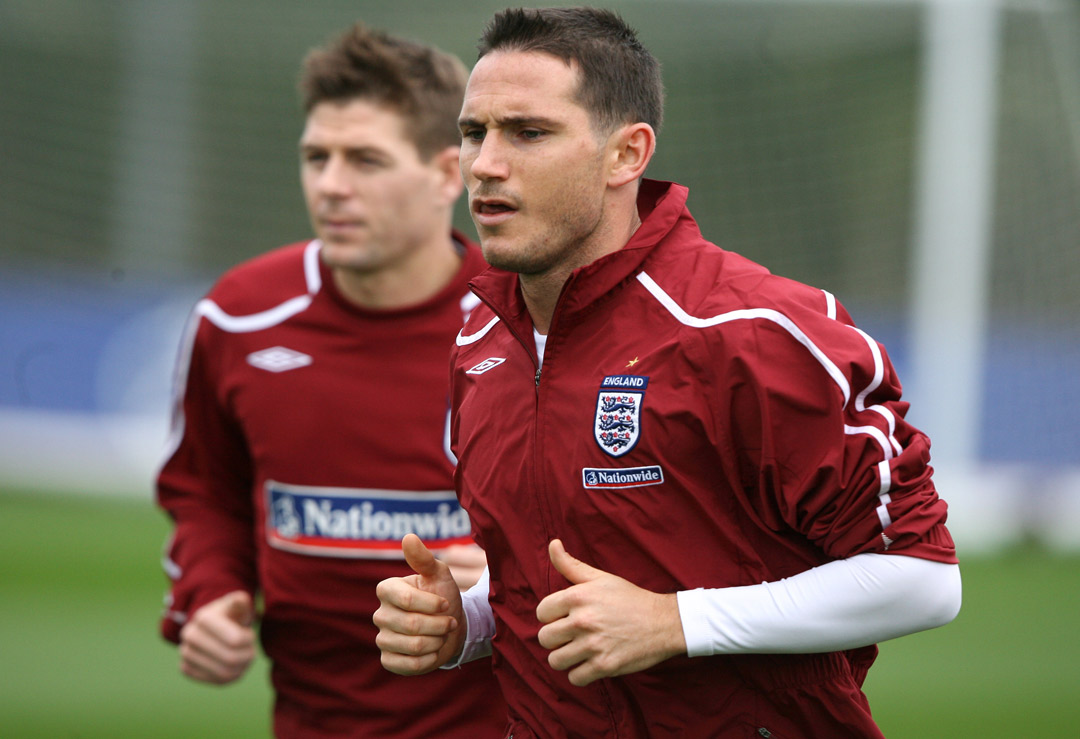
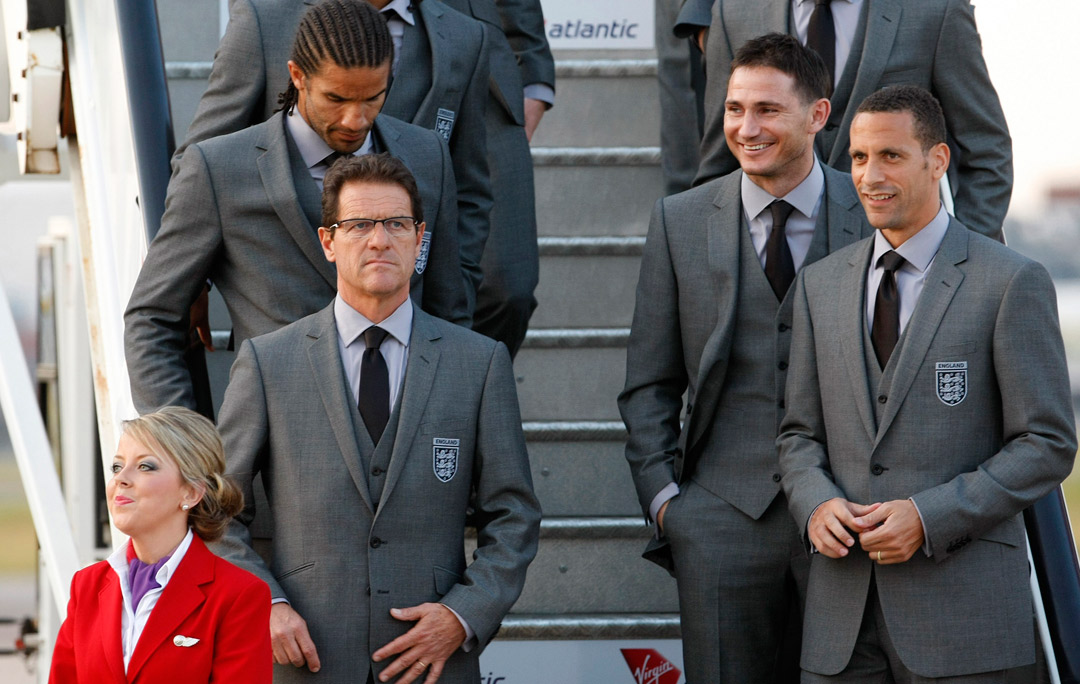
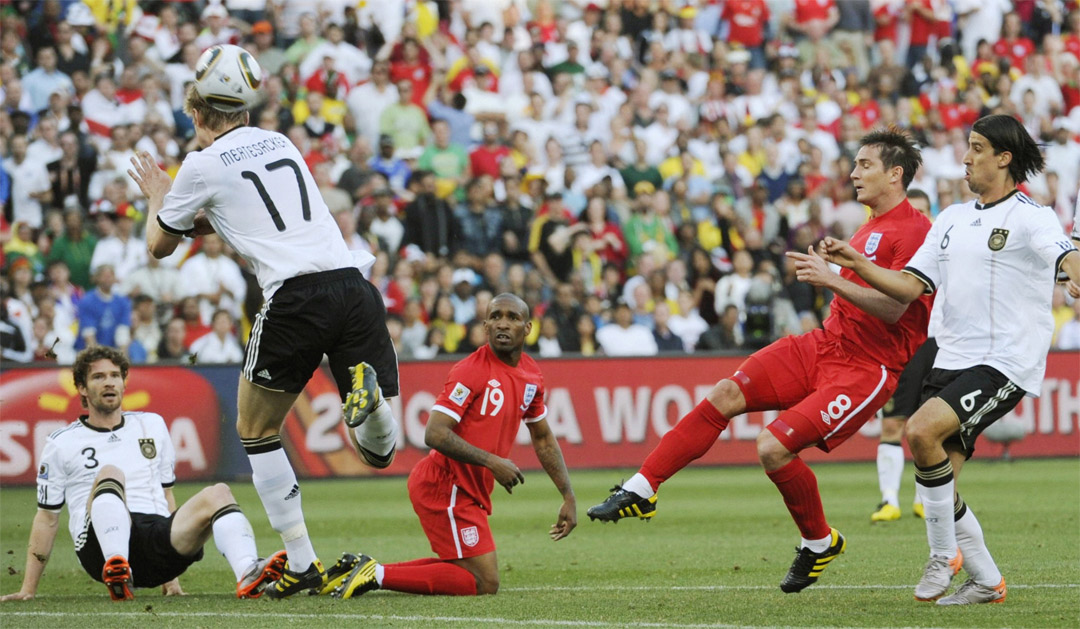
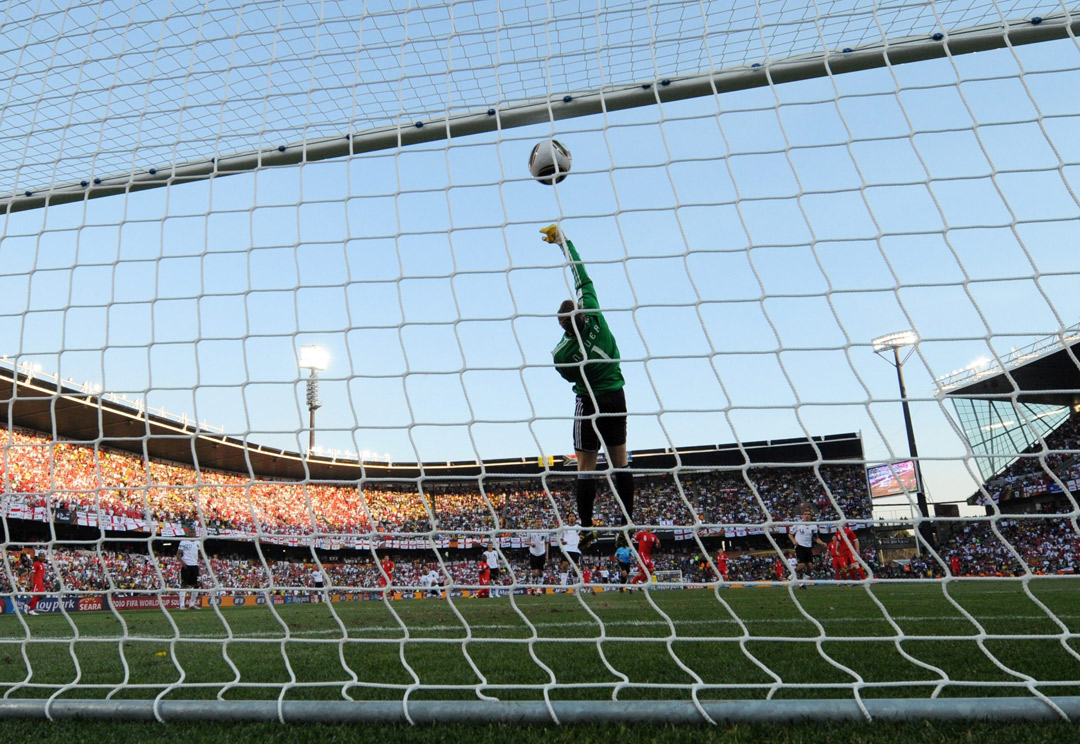
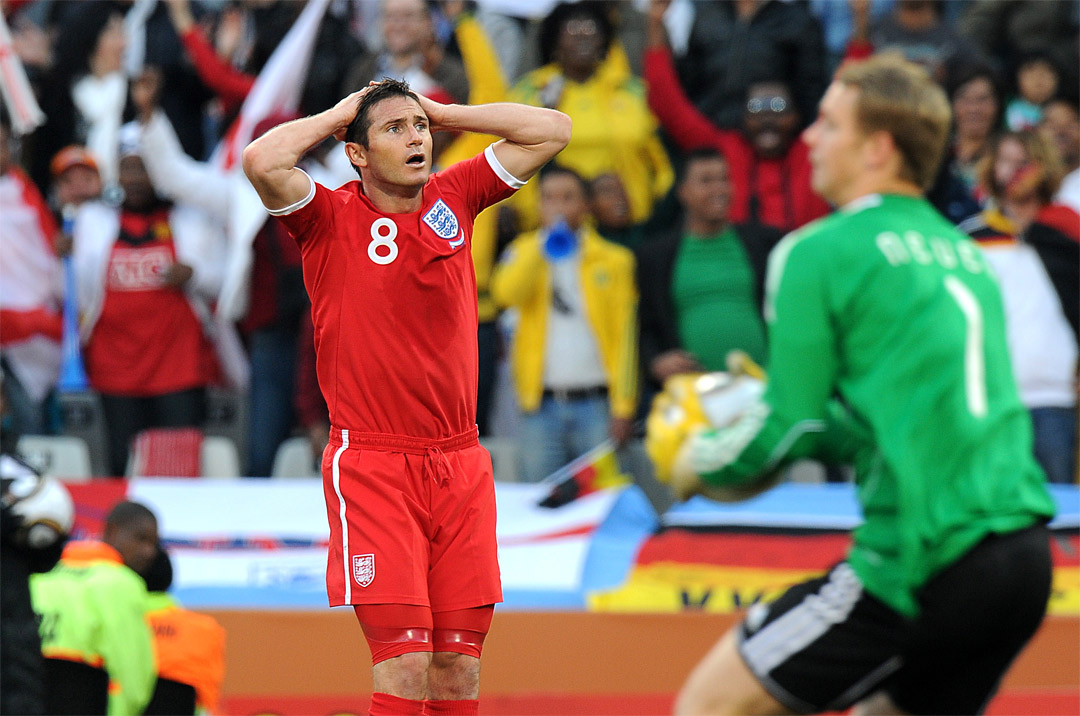
In the twilight of his career Lampard has led by example, unlike some of his more controversial Chelsea and England team-mates.
So it came as little surprise when Roy Hodgson handed him the captain's armband for England's friendly against Denmark in February 2011. After being overlooked for the permanent captaincy after John Terry's premature retirement, it was just reward for England's long-serving and ever-professional talisman.
After skippering Hodgson's men to friendly victory over Italy, Lampard led from the front in their 1-0 win over Spain at Wembley with the game's only goal. But joy soon turned to despair as he was ruled out of England's Euro 2012 campaign with a thigh injury.
However, in March he reached a significant landmark by becoming England's highest-scoring midfielder, beating David Platt's record of 27 with a goal in the 8-0 demolition of San Marino at Wembley.
Now, with his sights set on a terrific ton against Ukraine on Tuesday night, Lampard can contemplate the possibility of one more major tournament. Even at 35 he's still - rightfully - one of the first names on Hodgson's teamsheet.
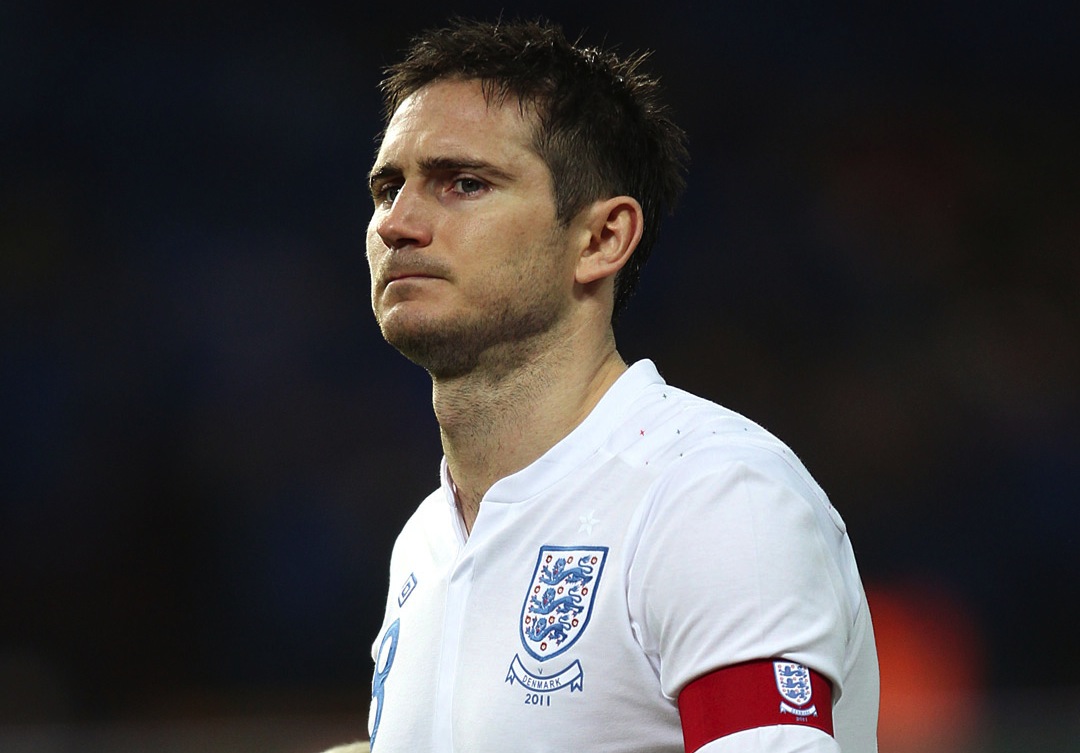
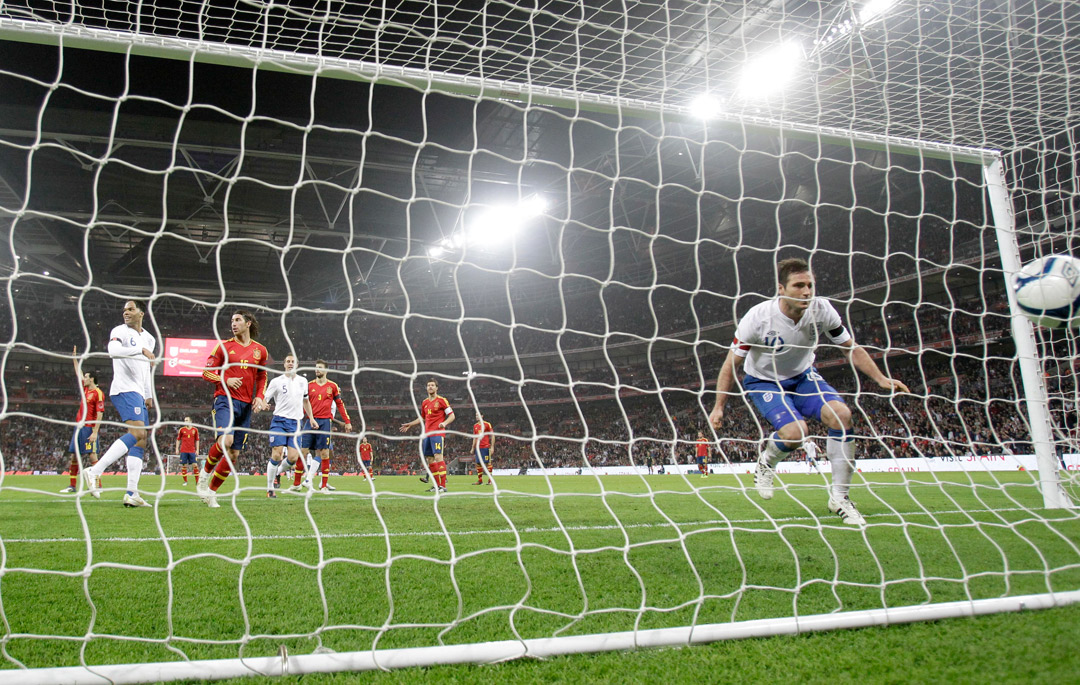
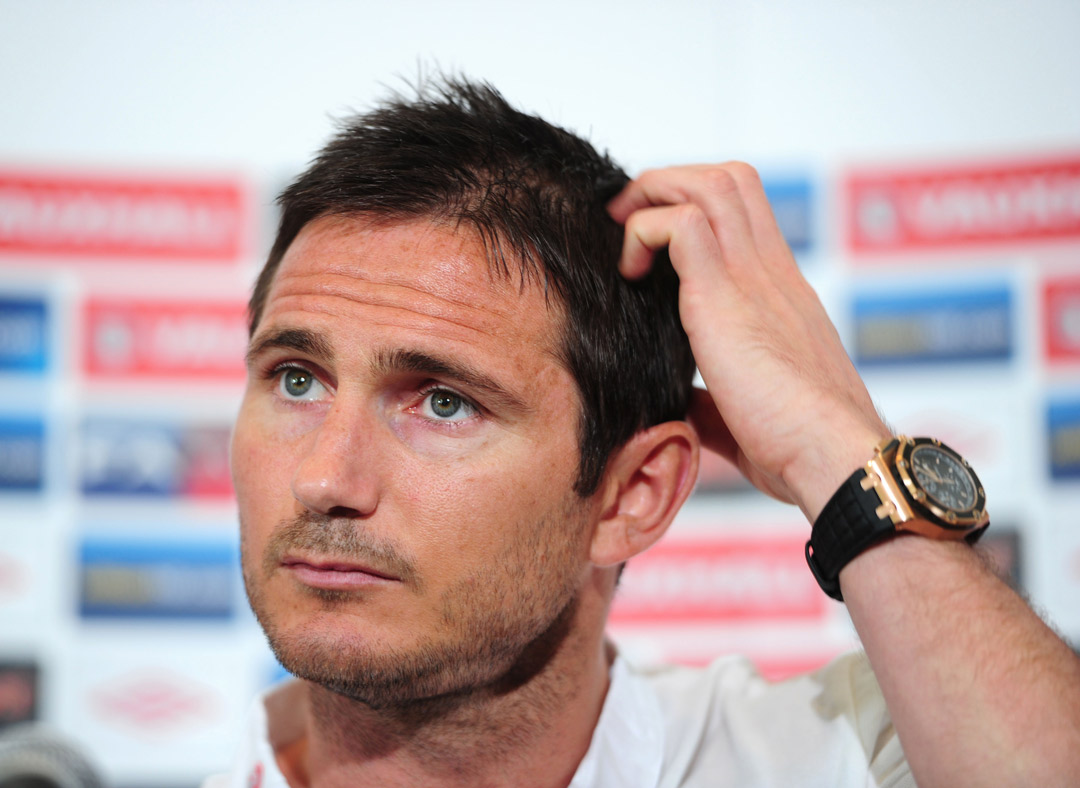
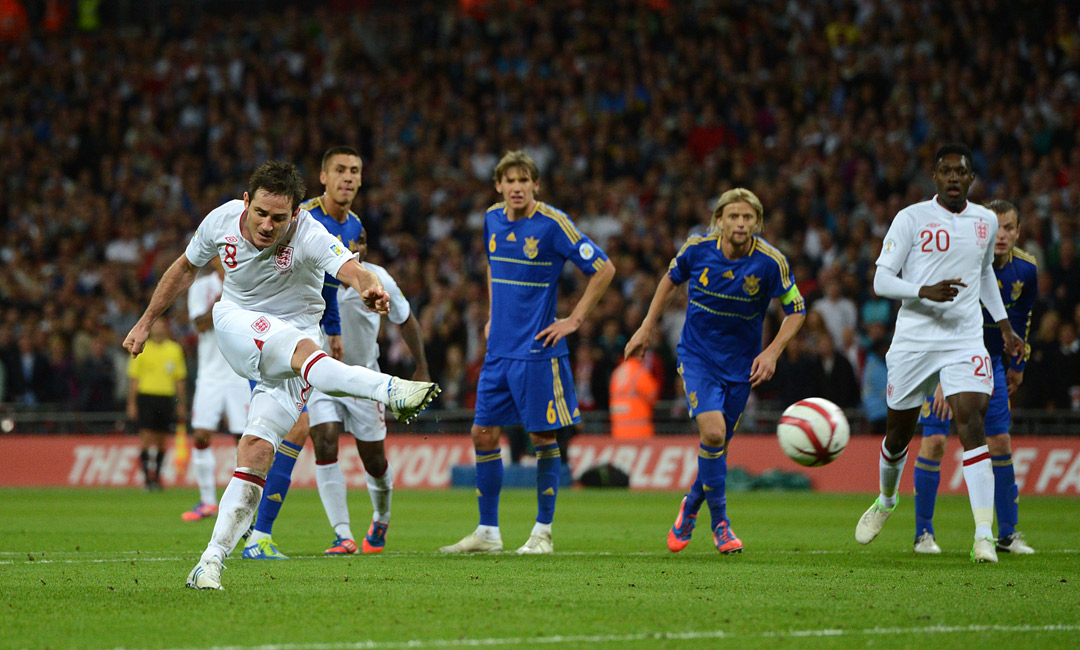
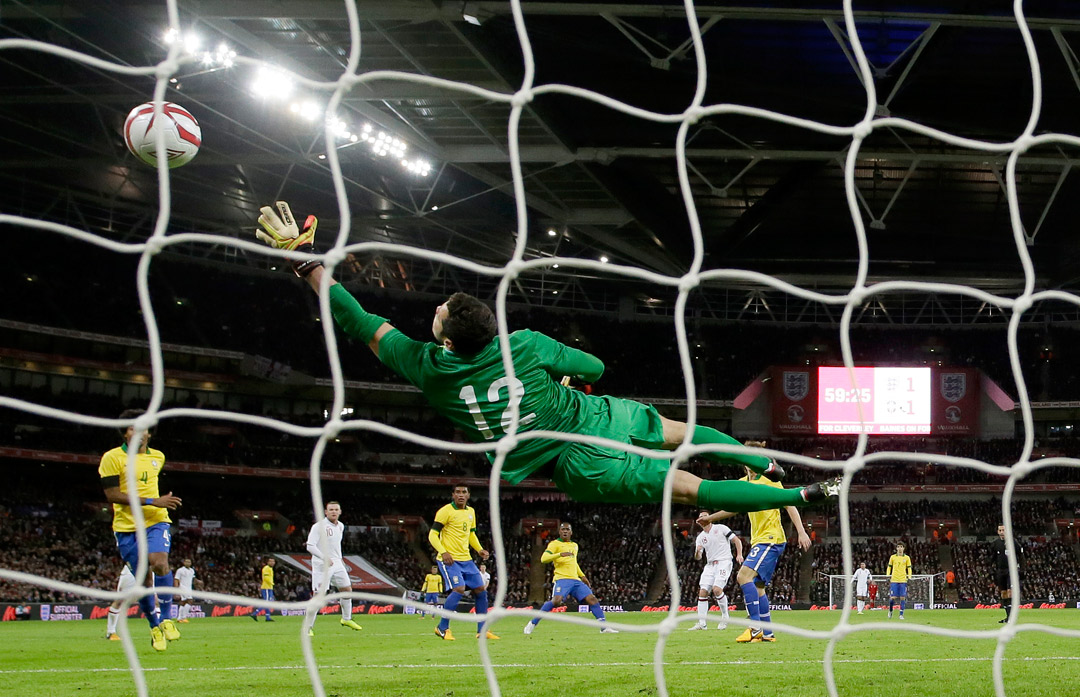
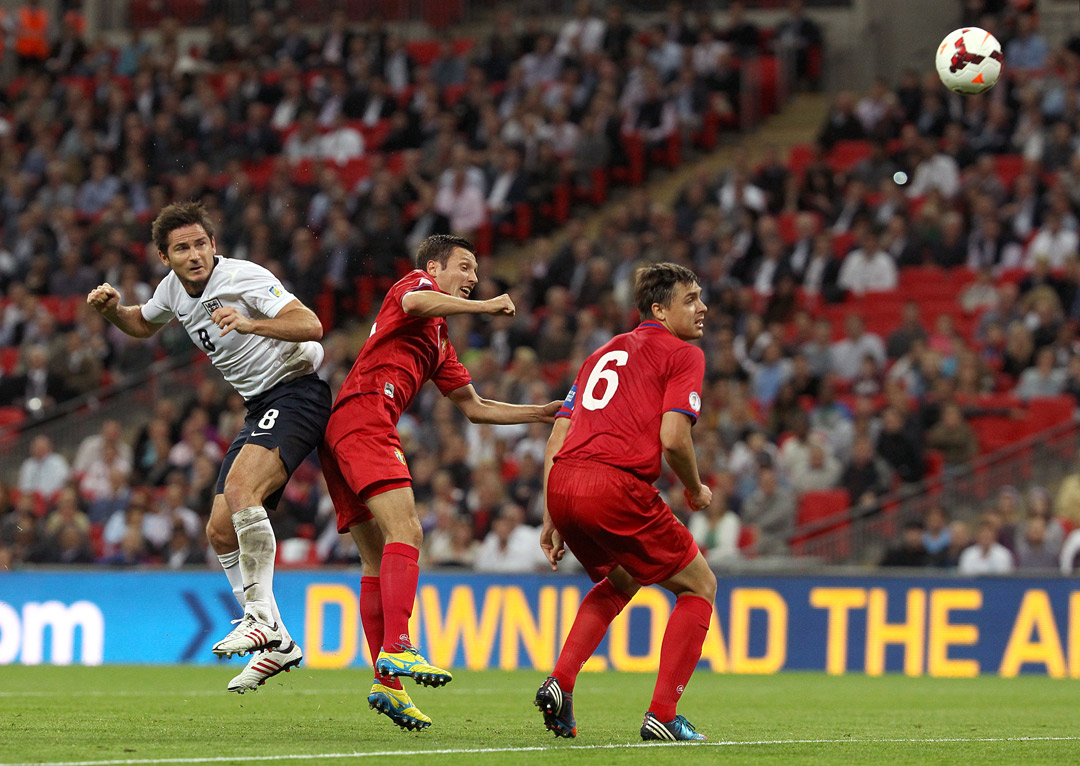
Joe was the Deputy Editor at FourFourTwo until 2022, having risen through the FFT academy and been on the brand since 2013 in various capacities.
By weekend and frustrating midweek night he is a Leicester City fan, and in 2020 co-wrote the autobiography of former Foxes winger Matt Piper – subsequently listed for both the Telegraph and William Hill Sports Book of the Year awards.

